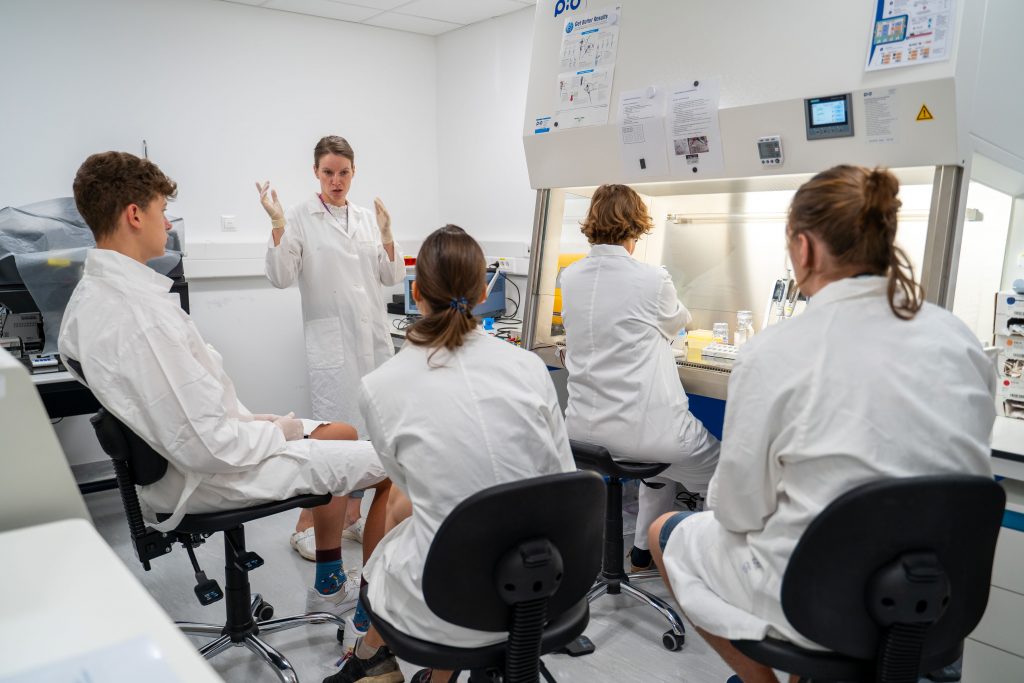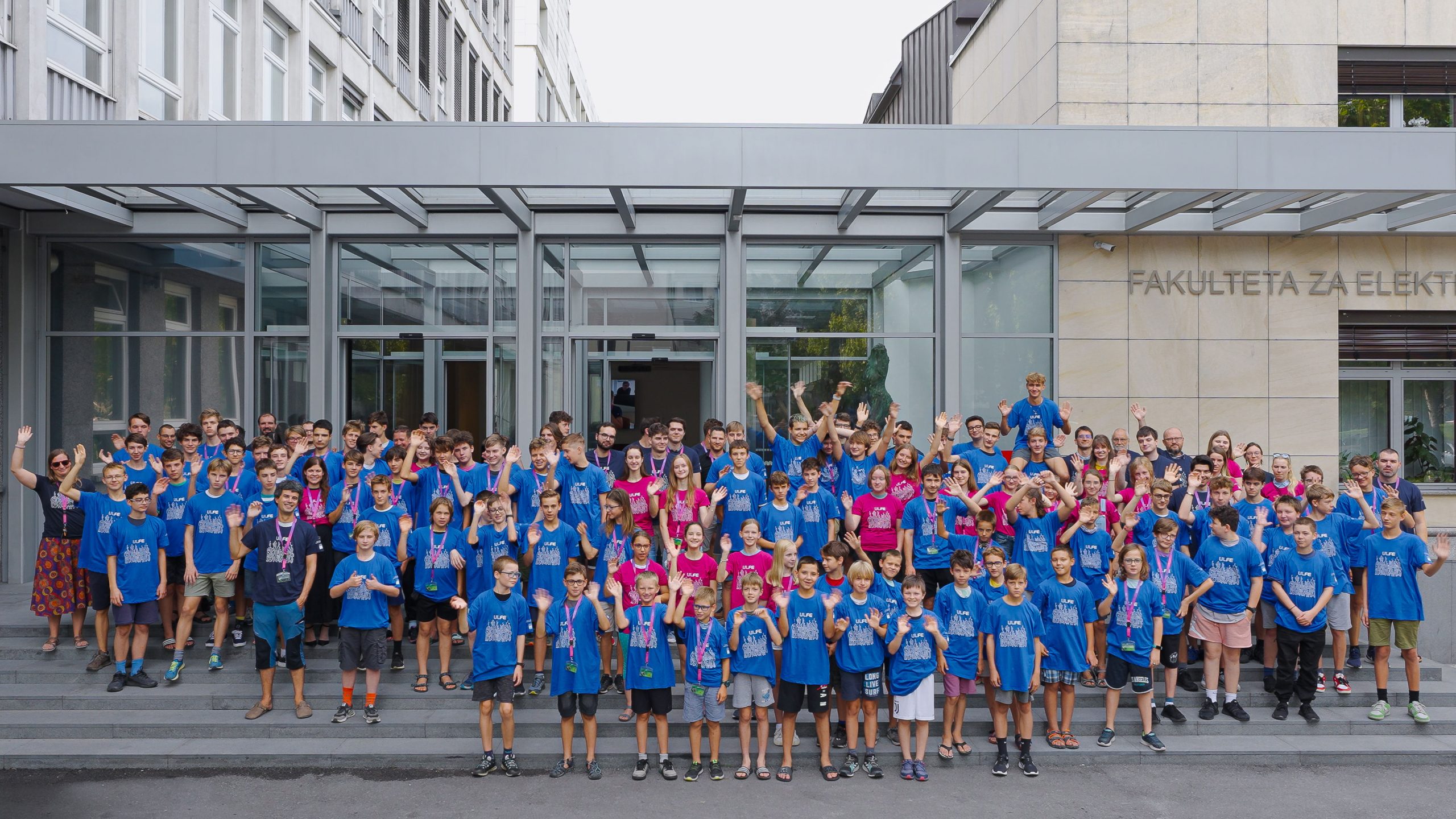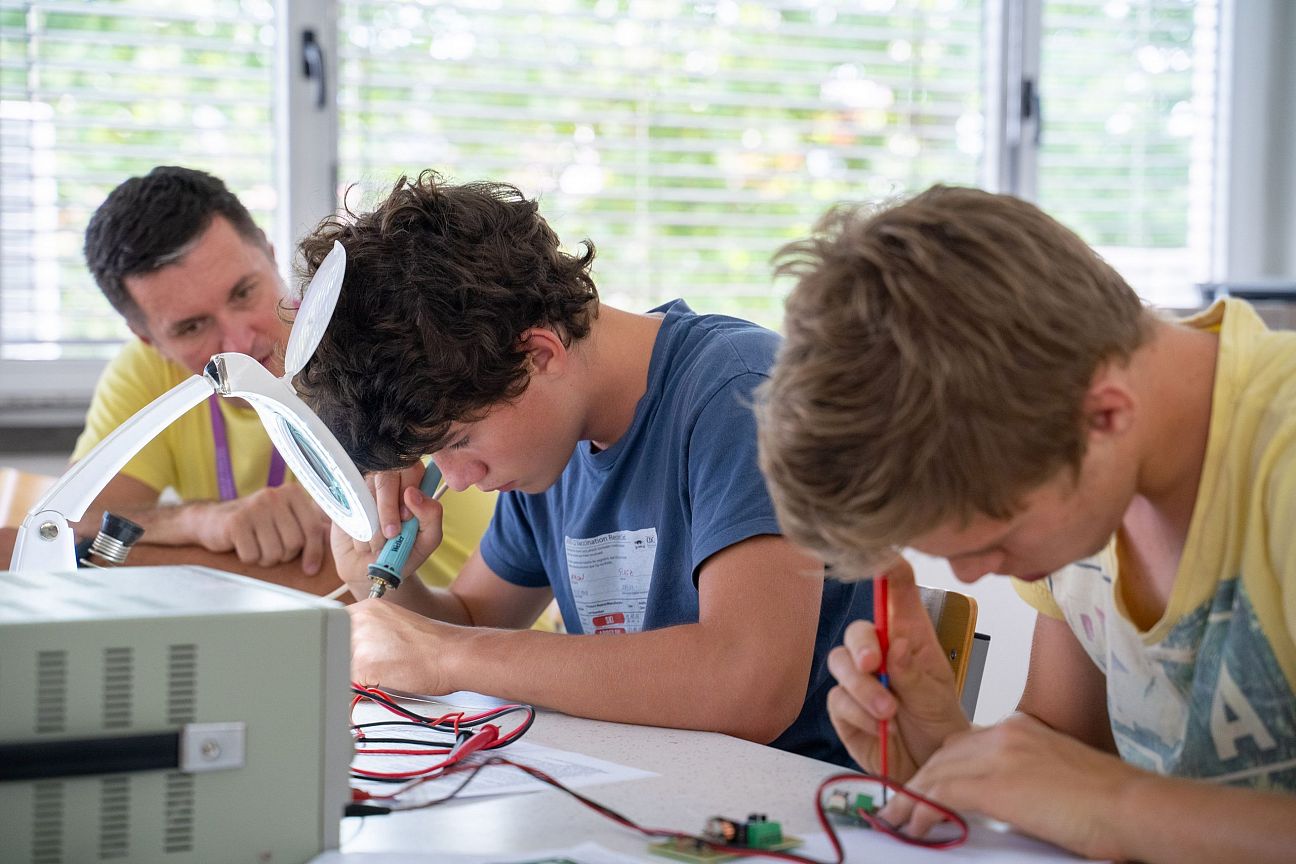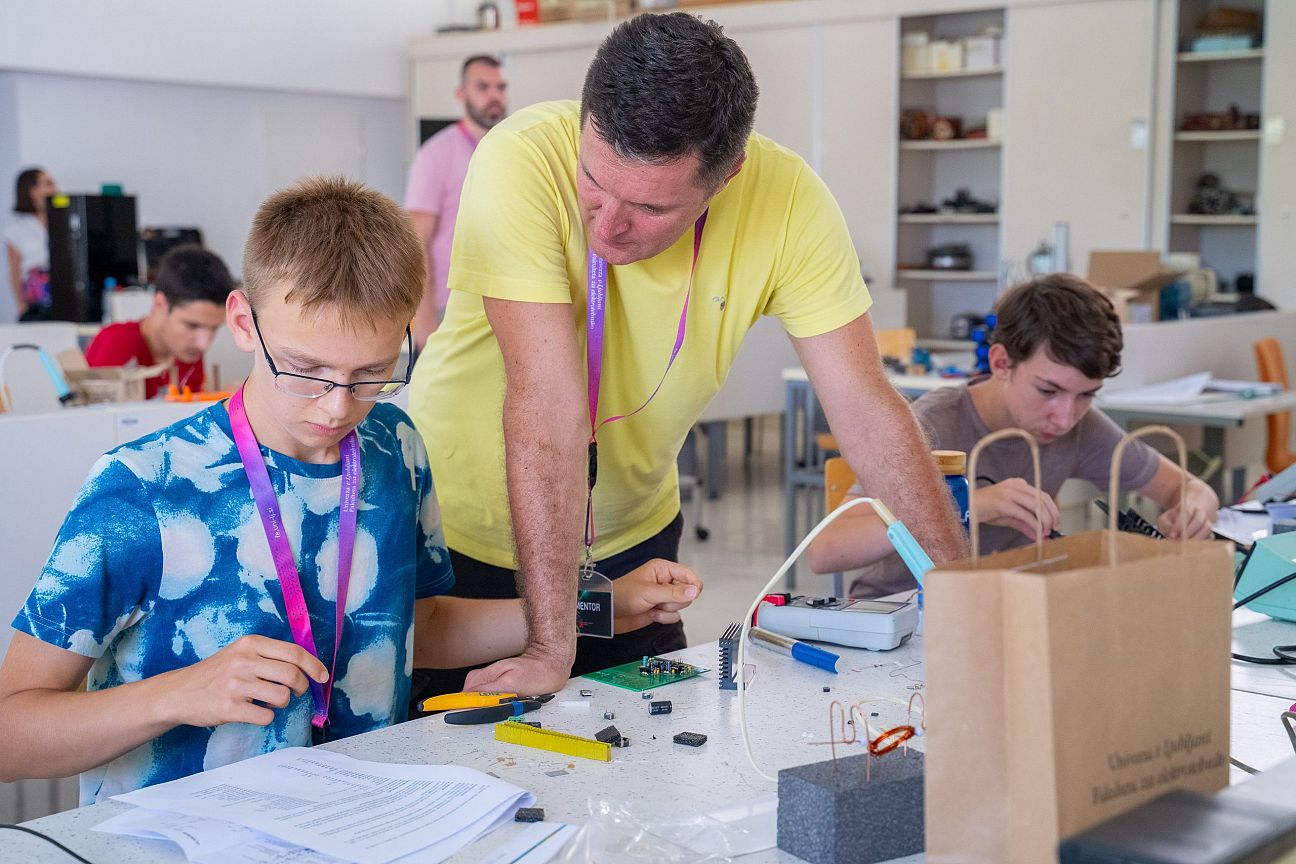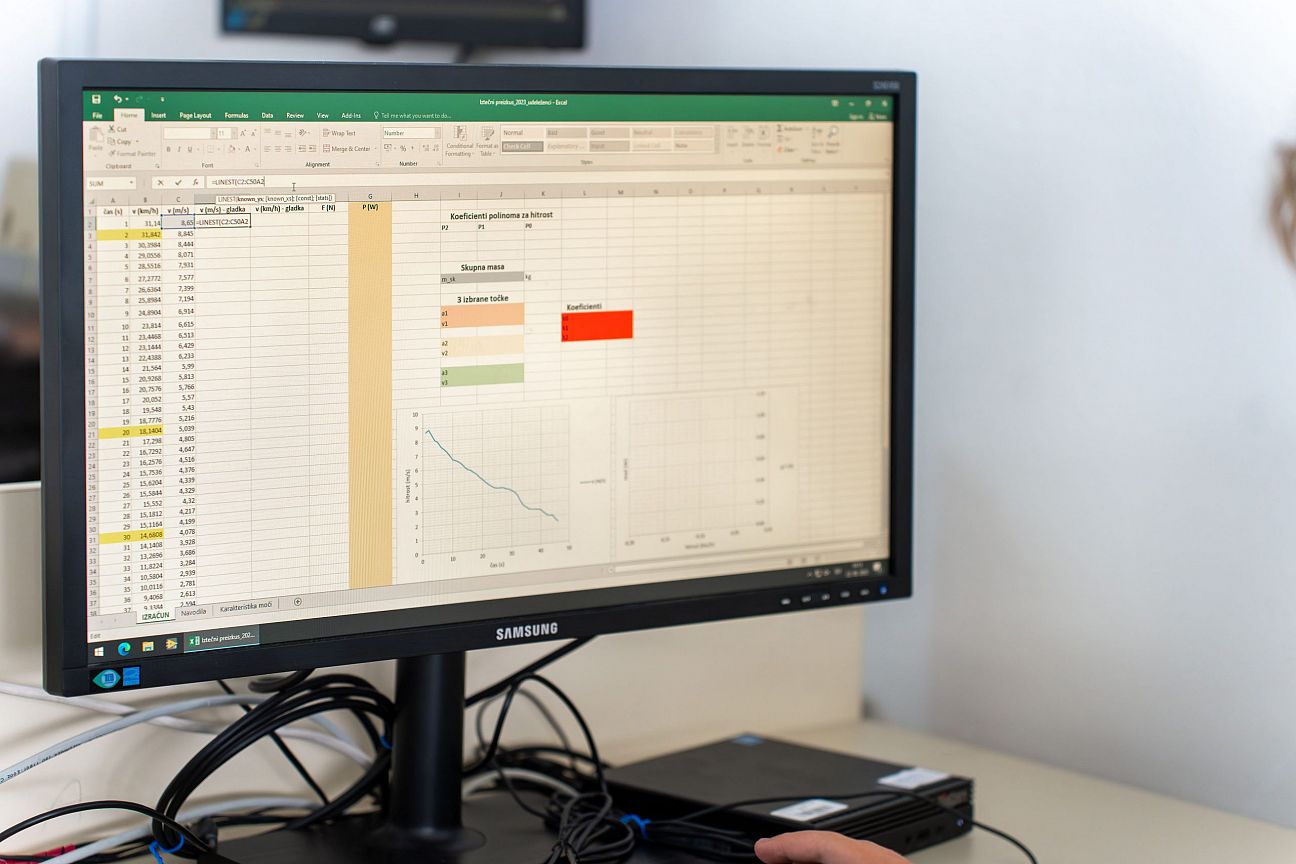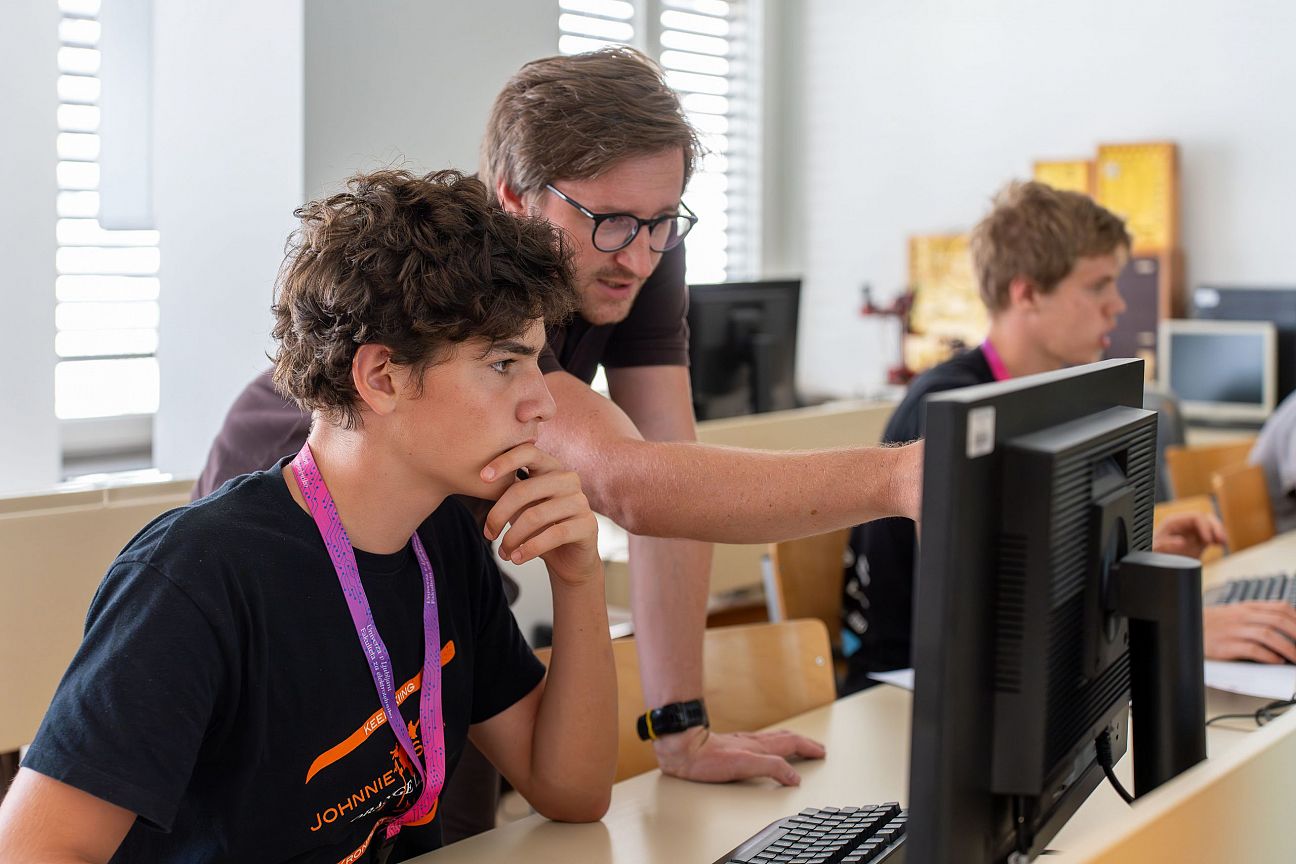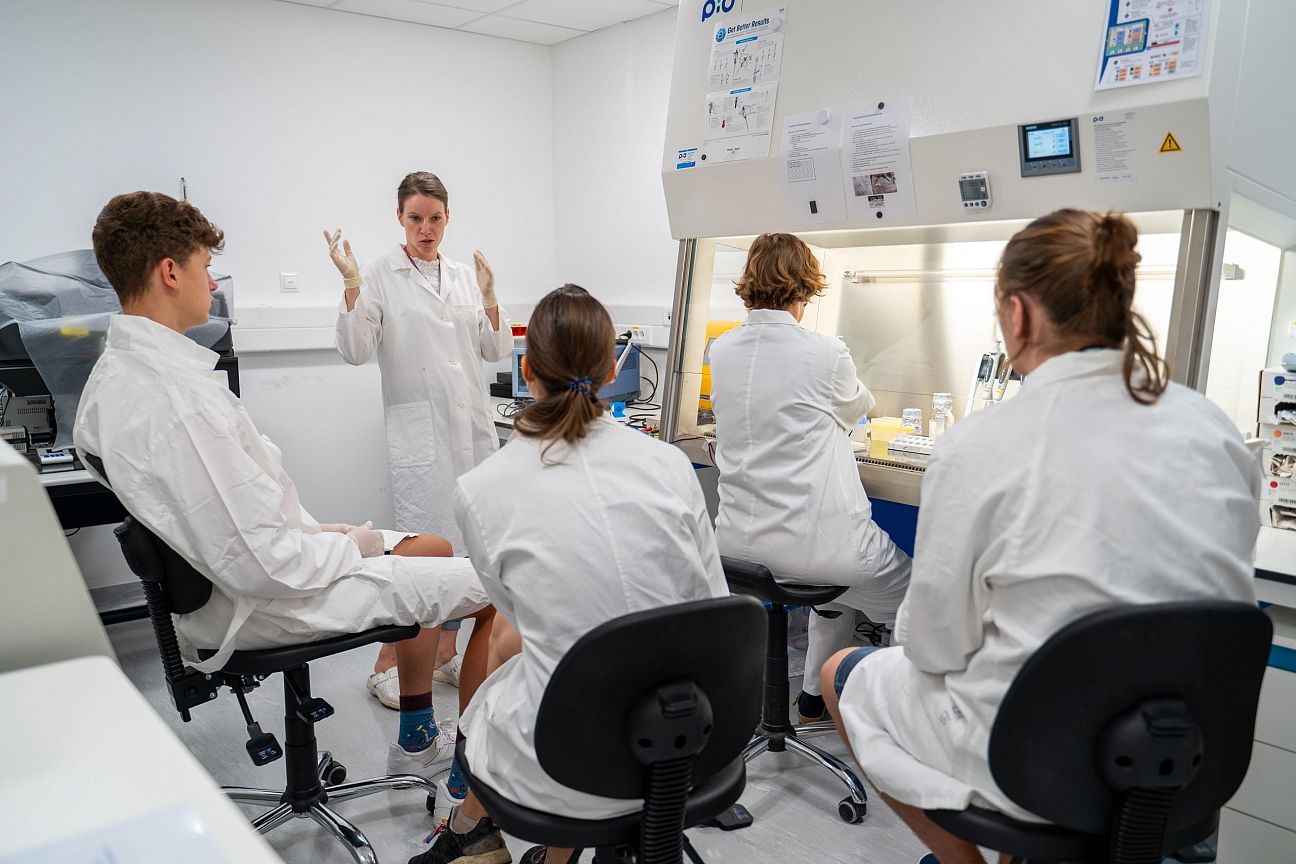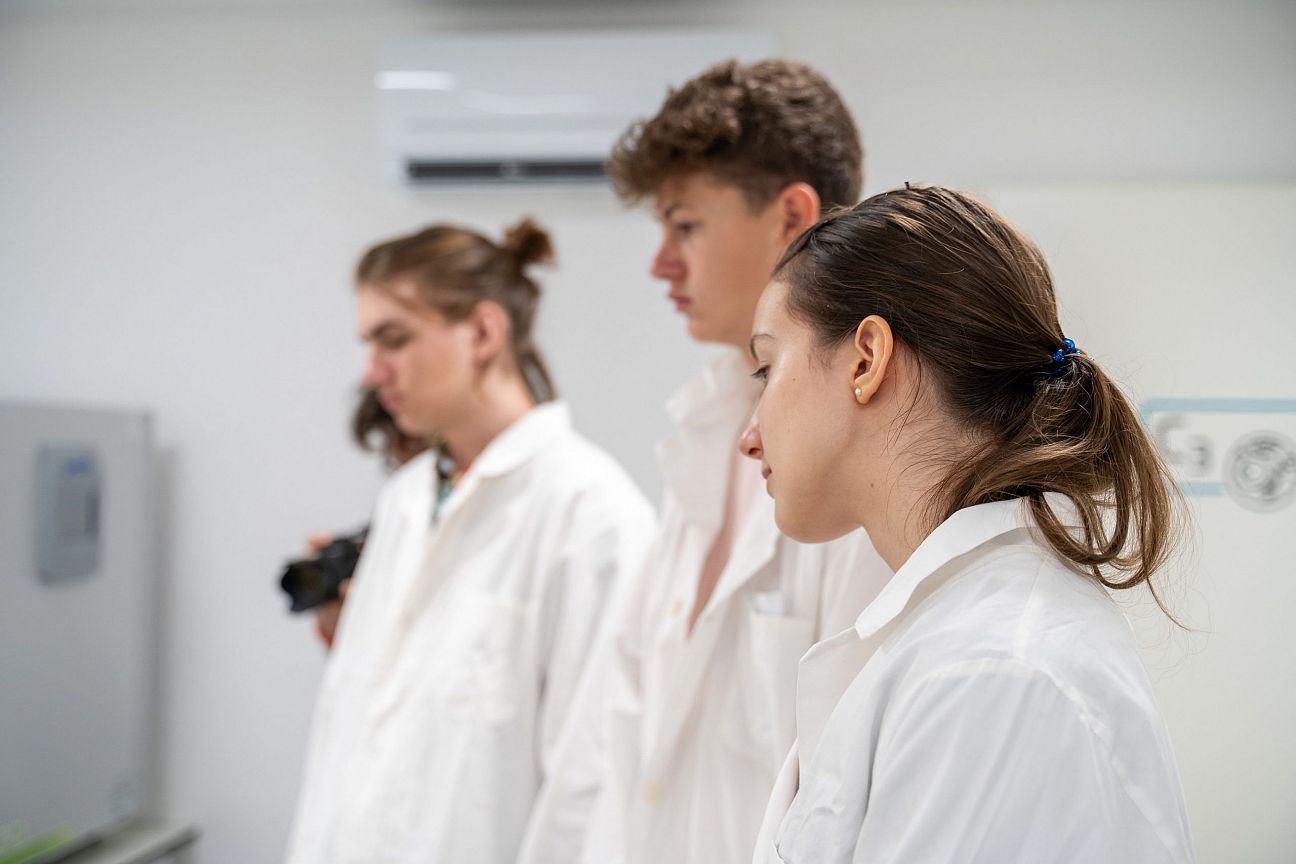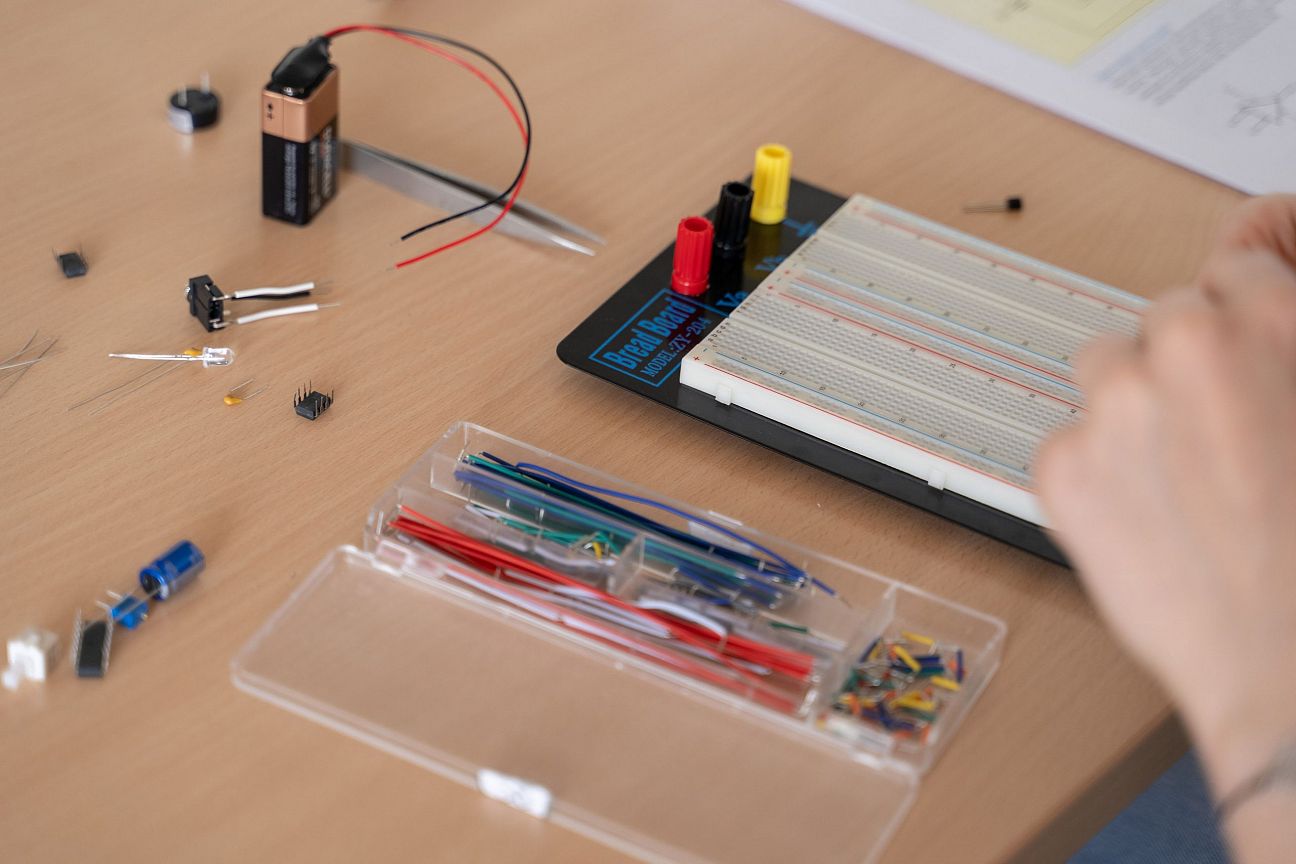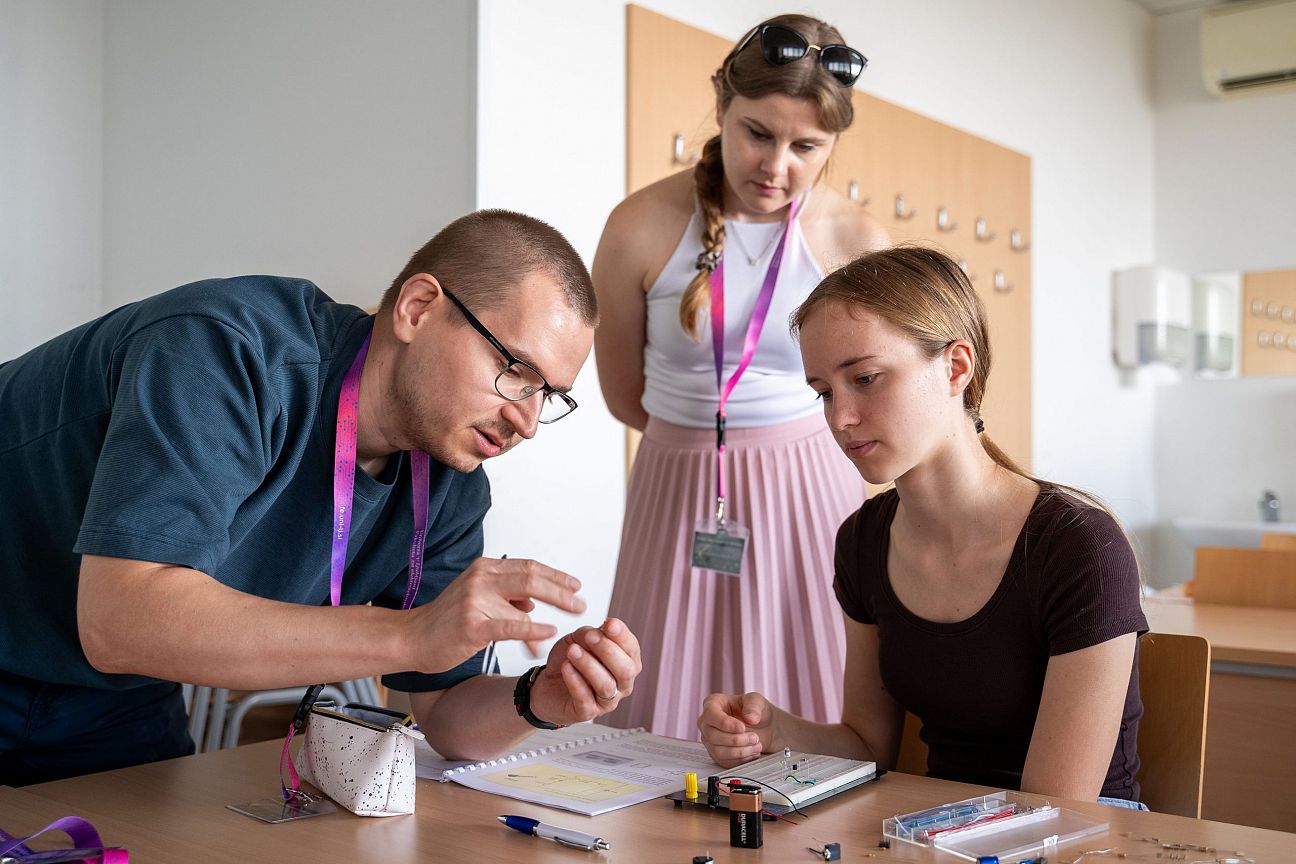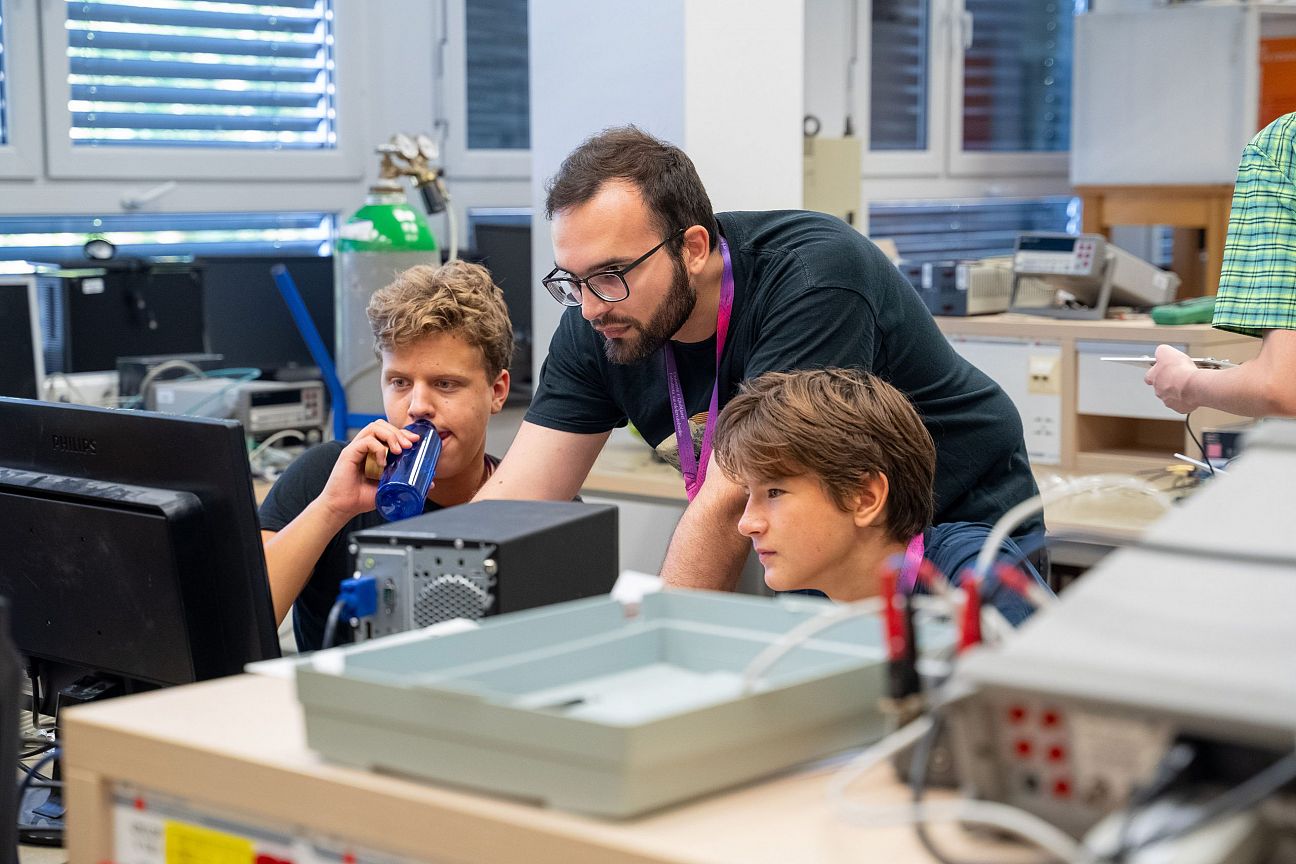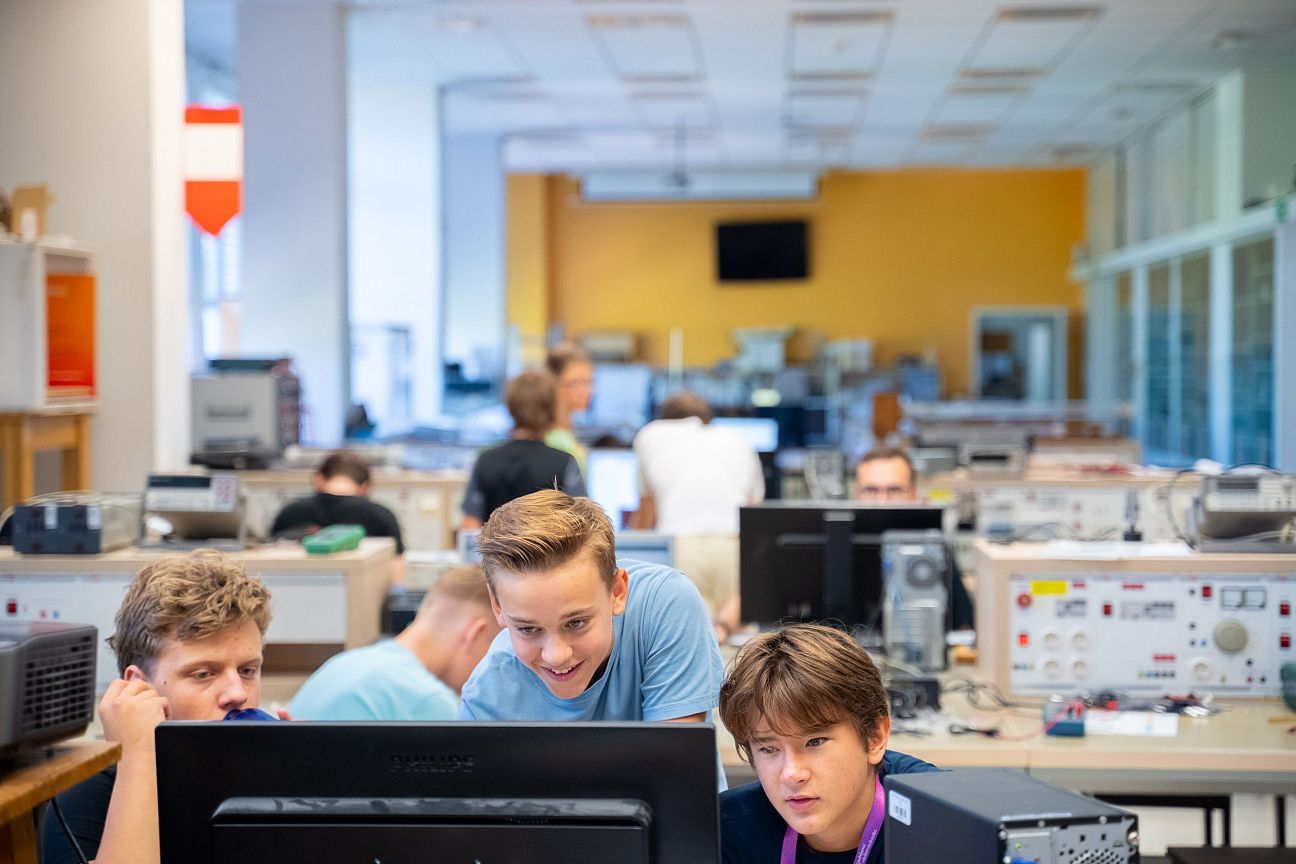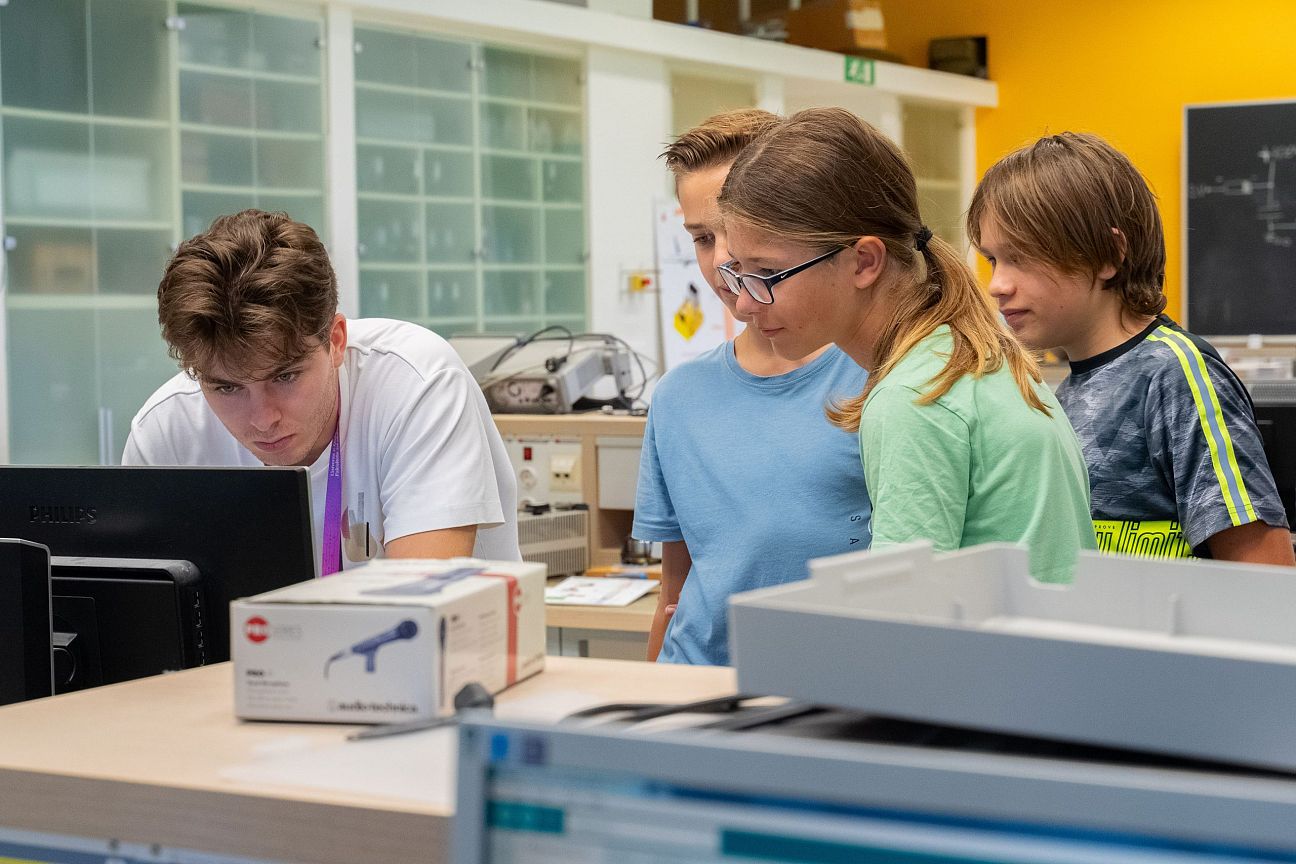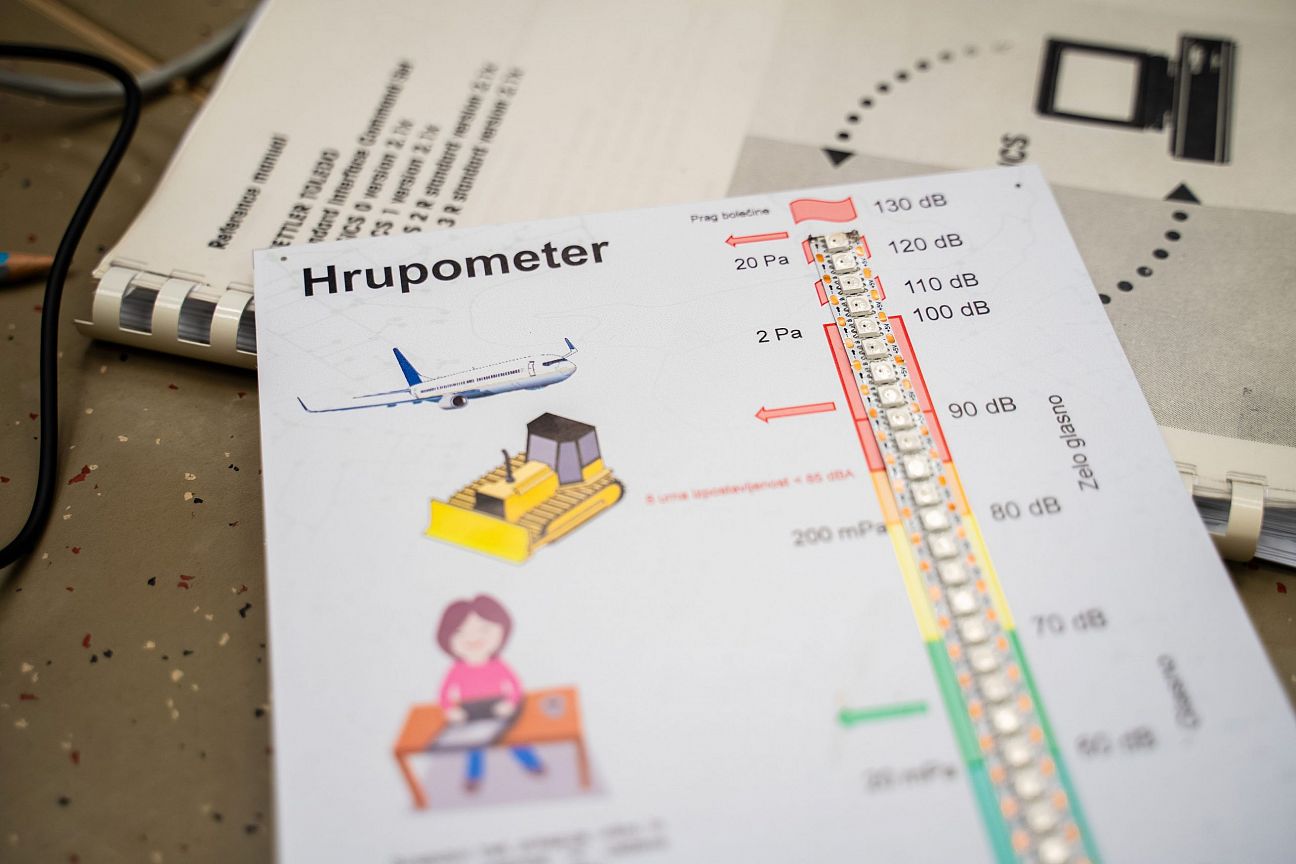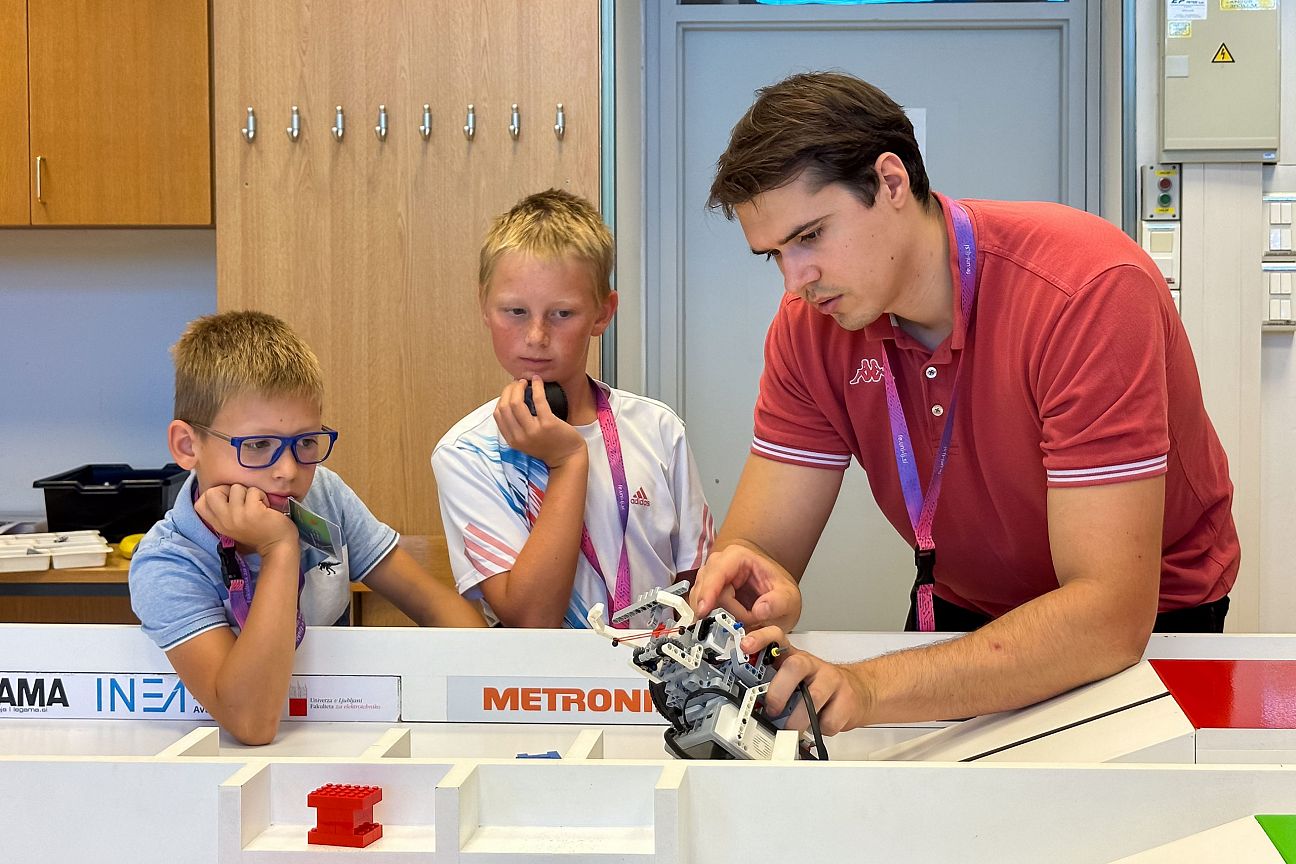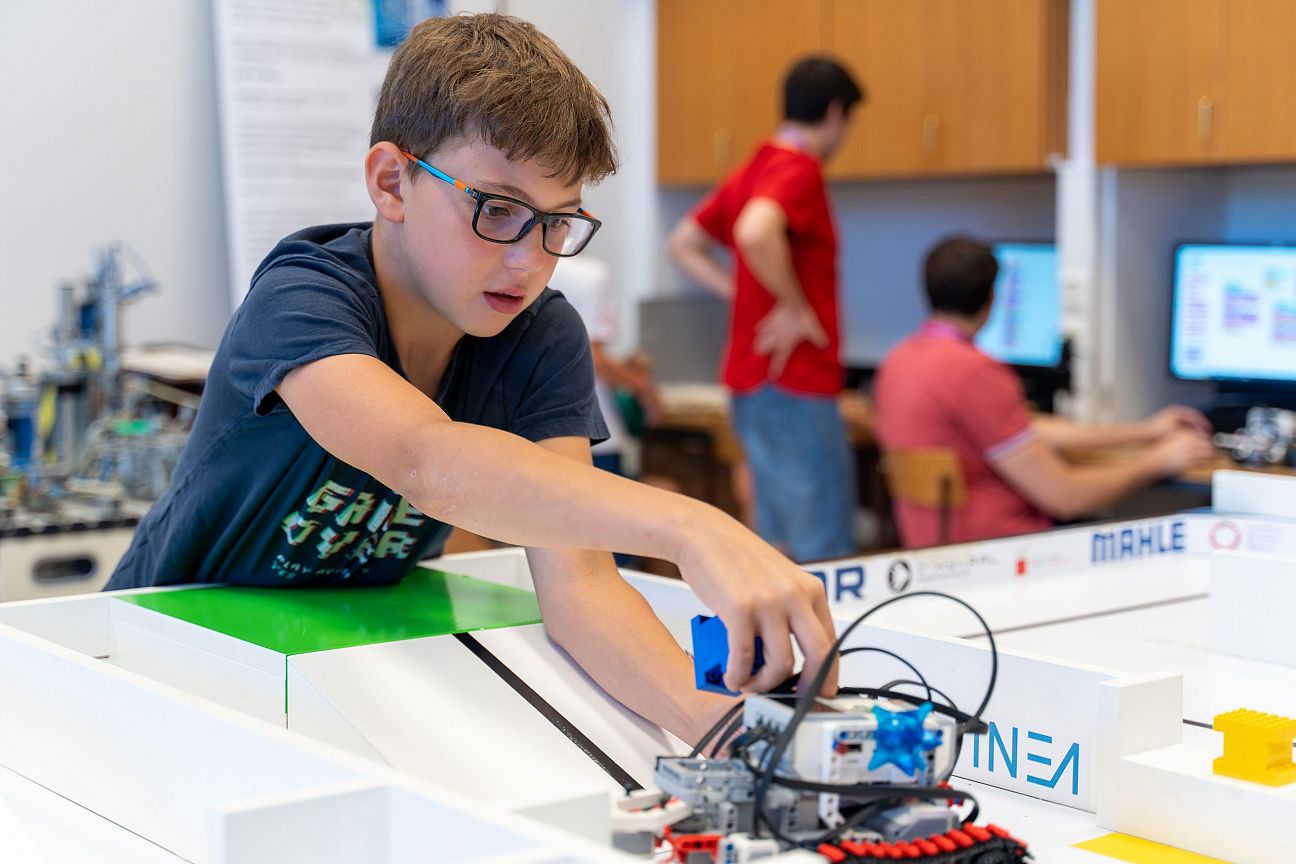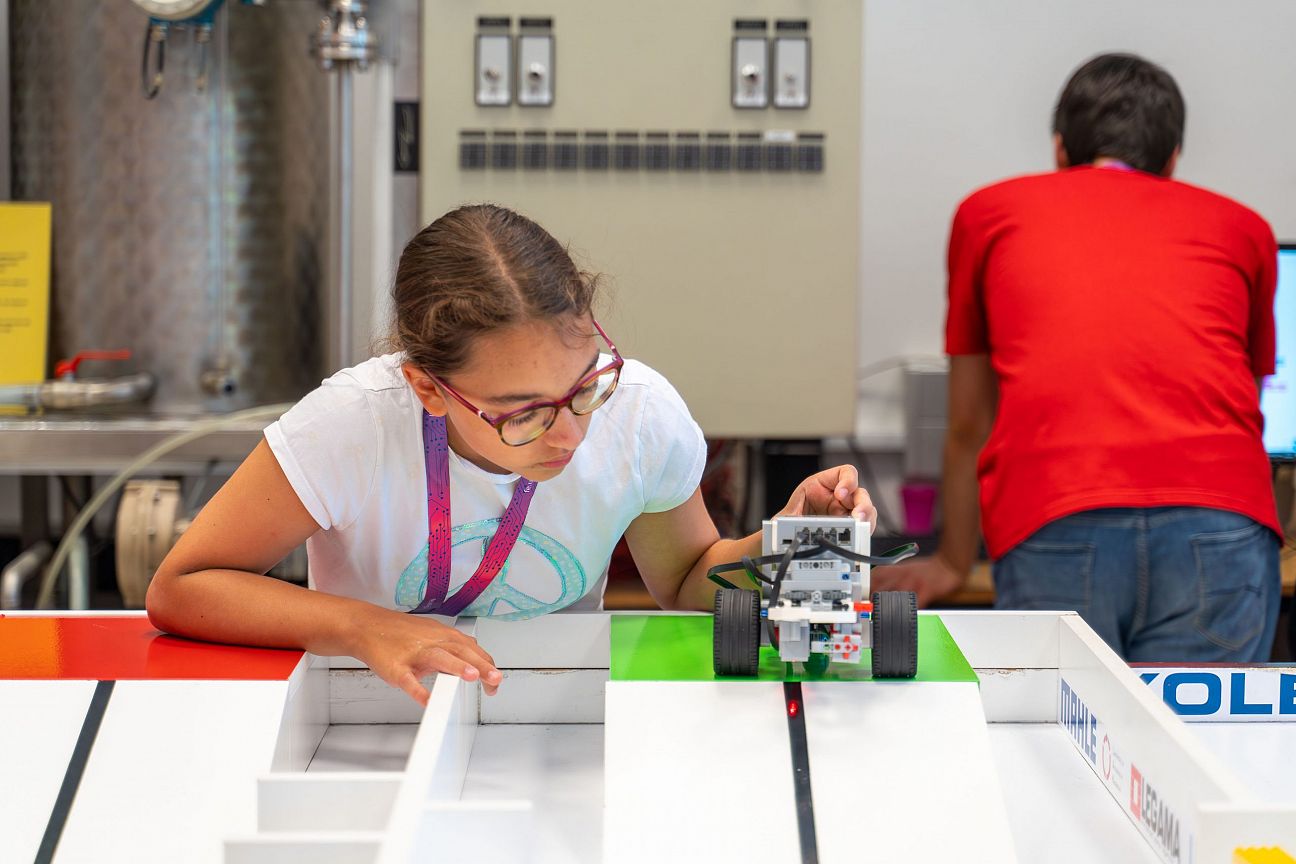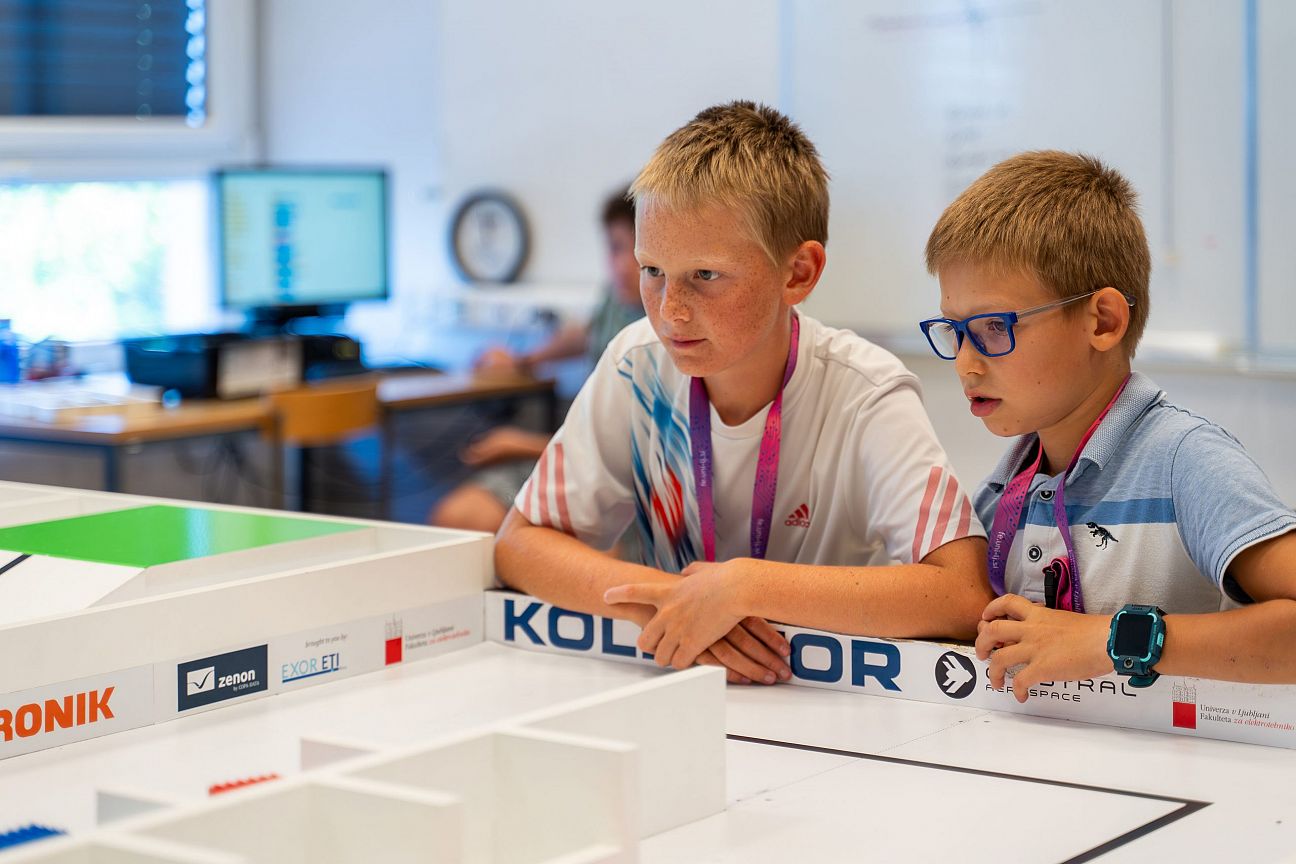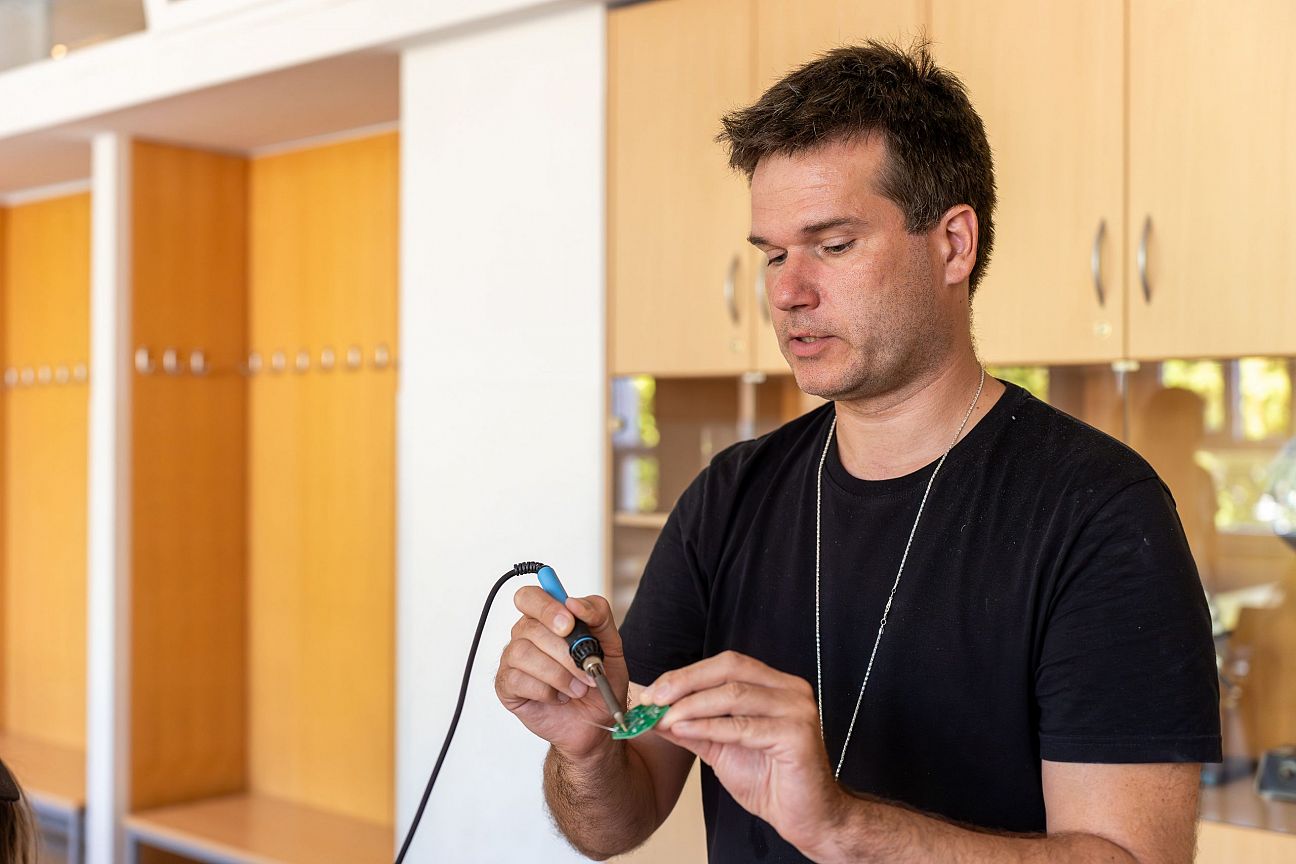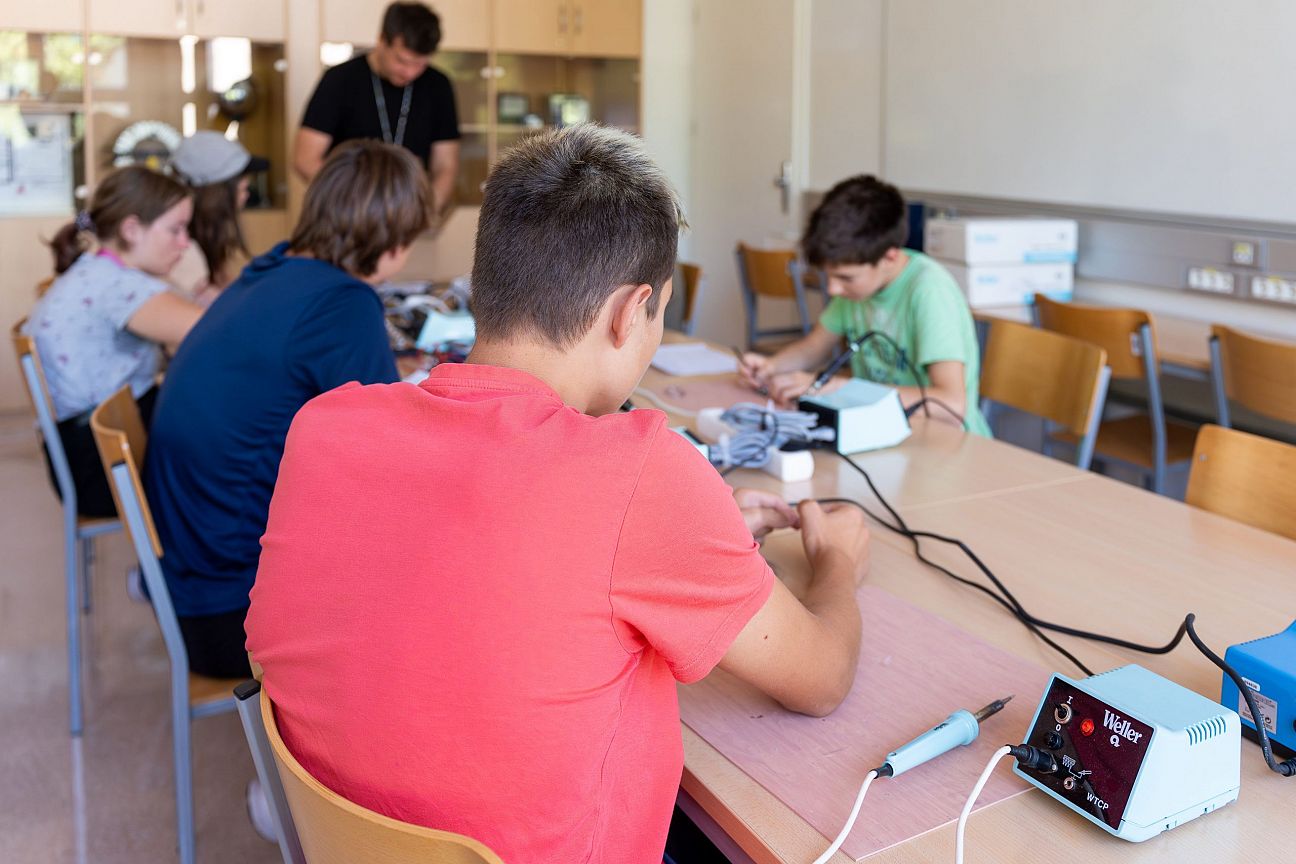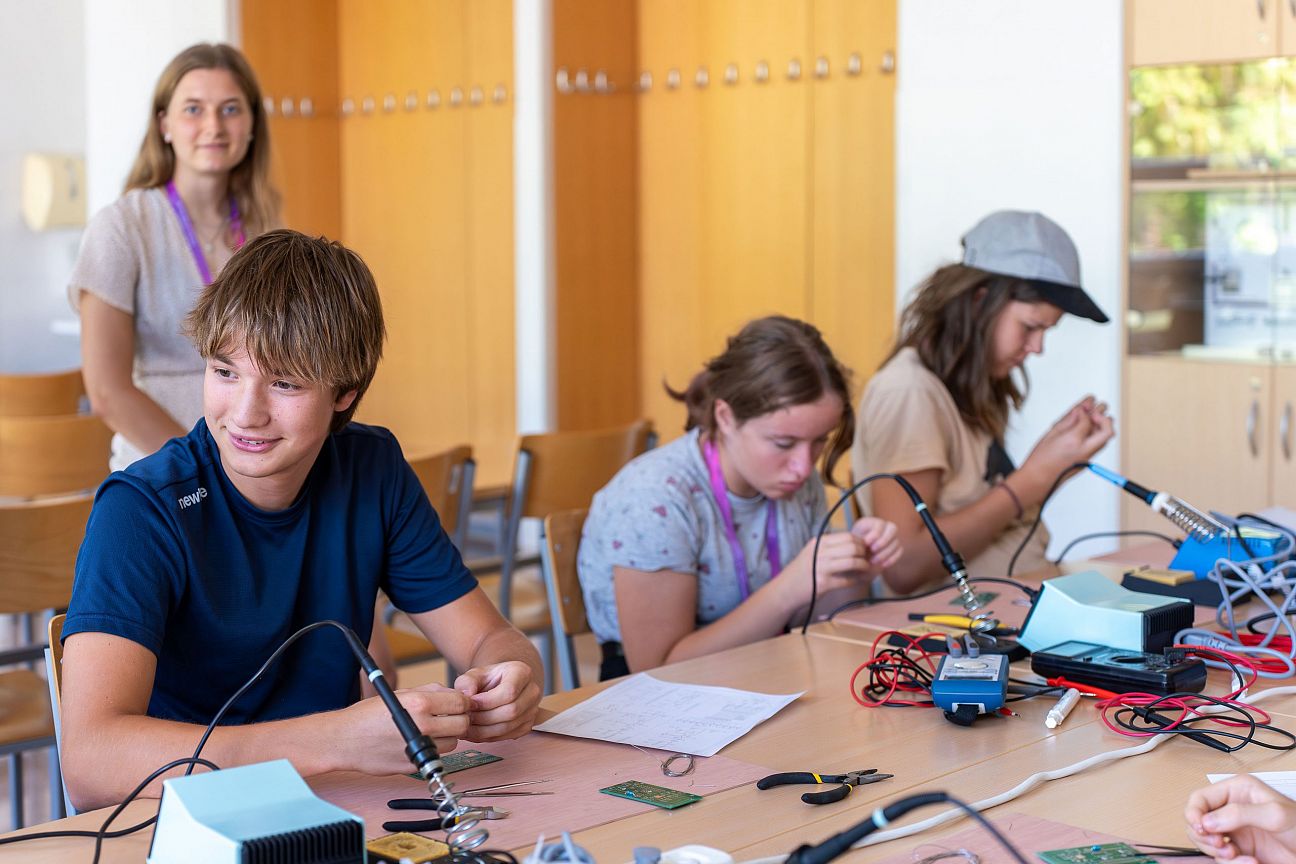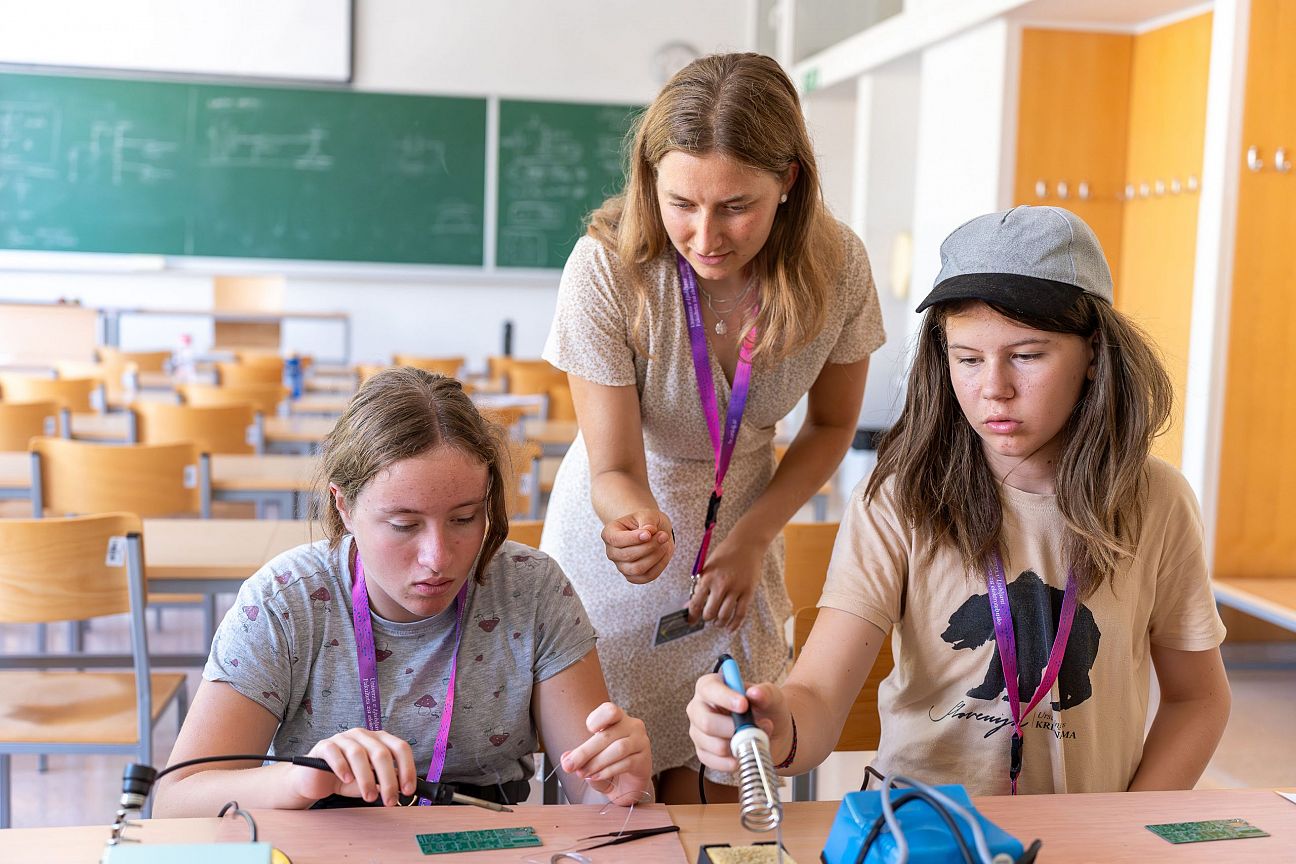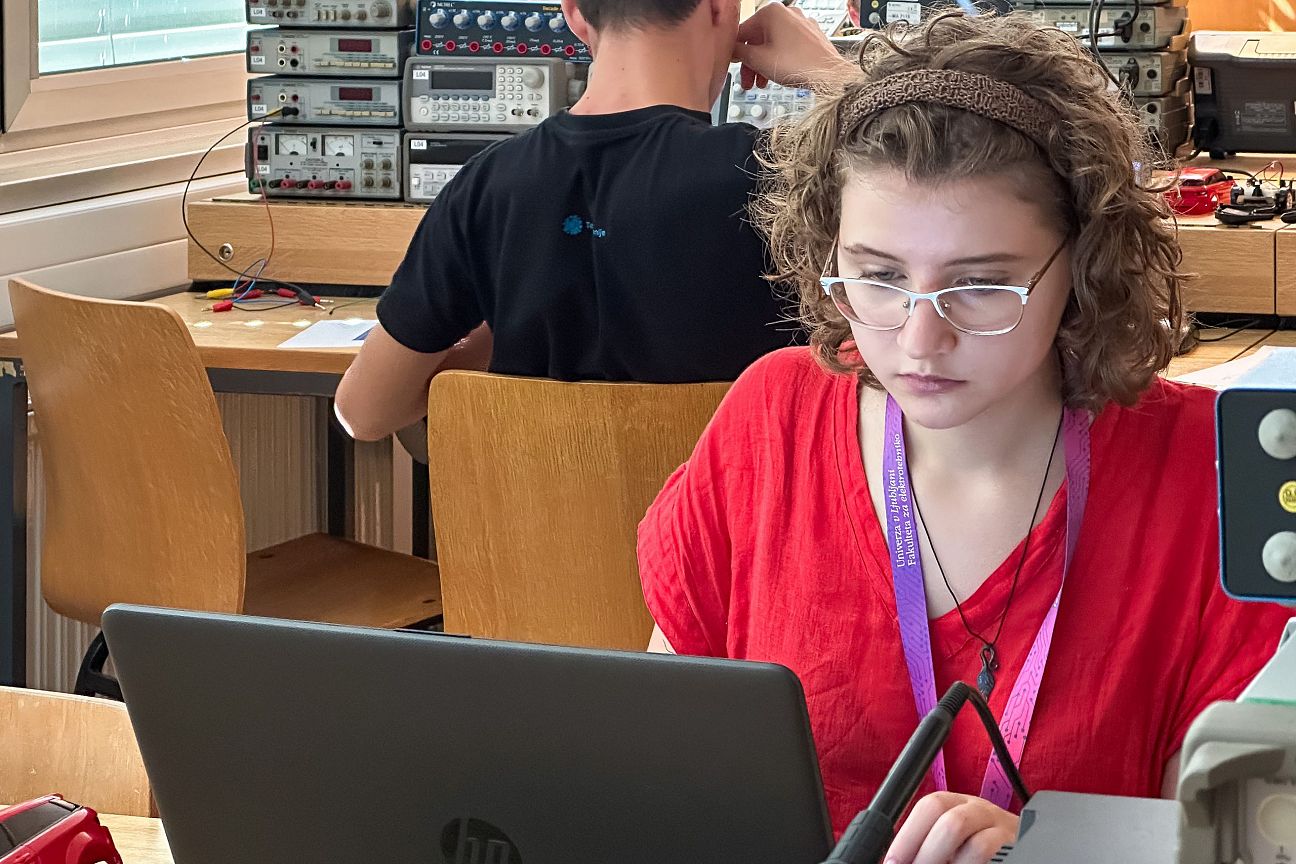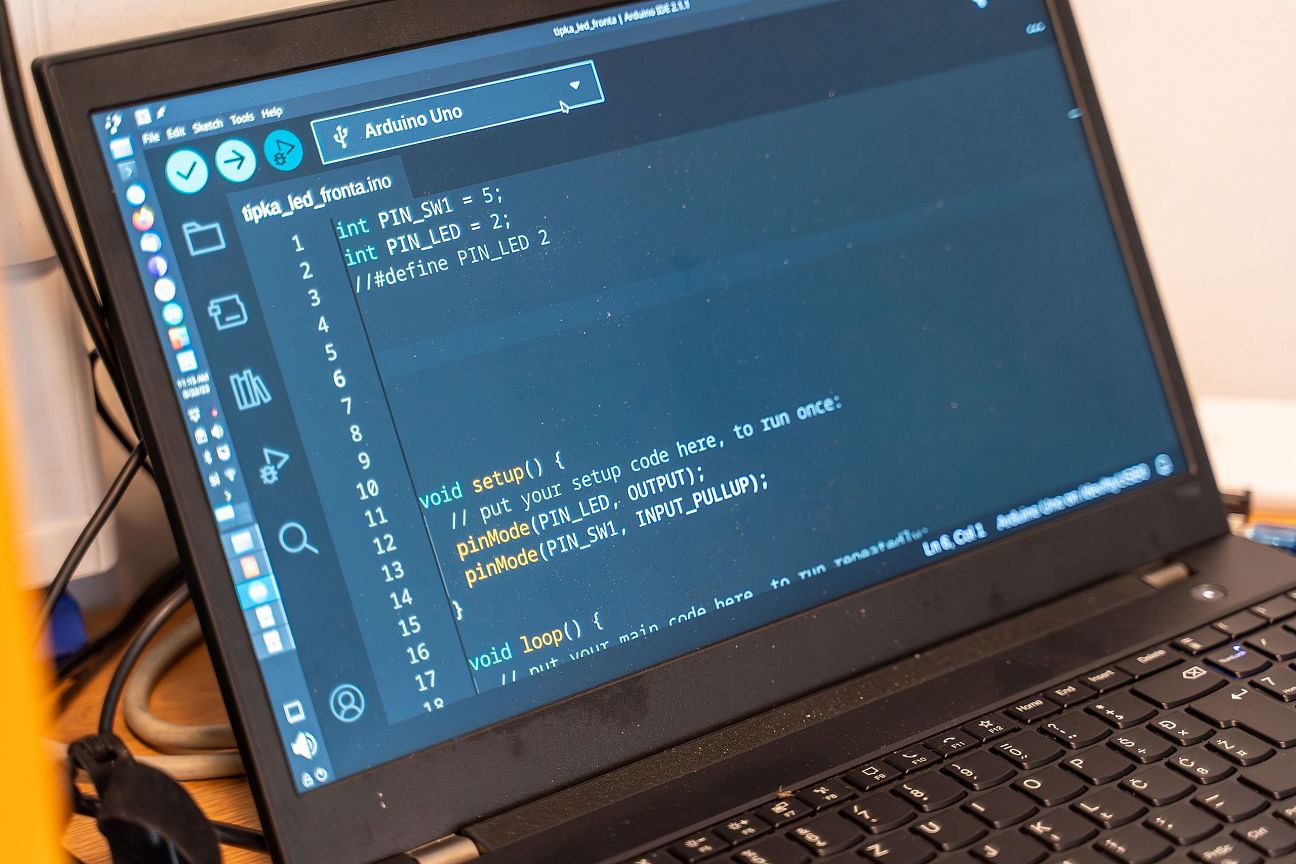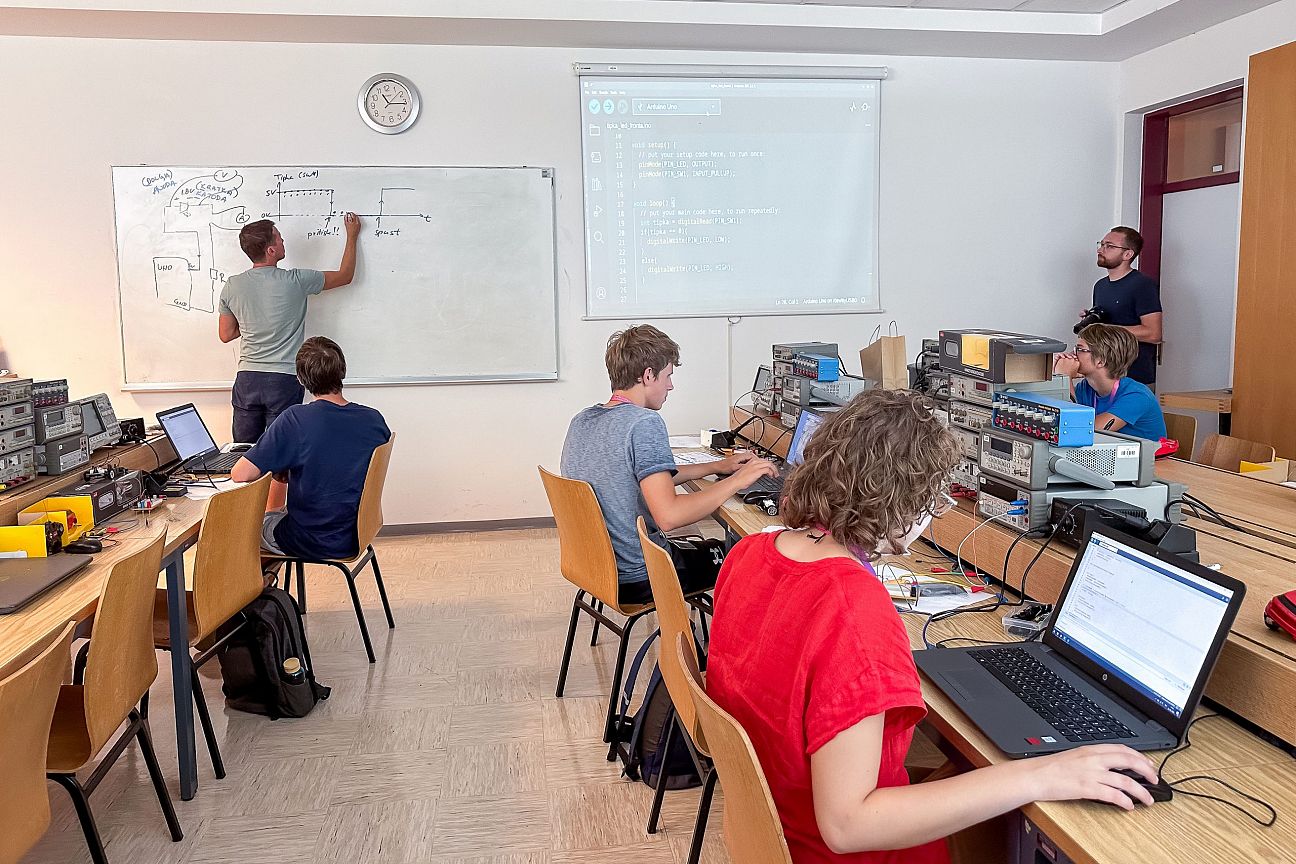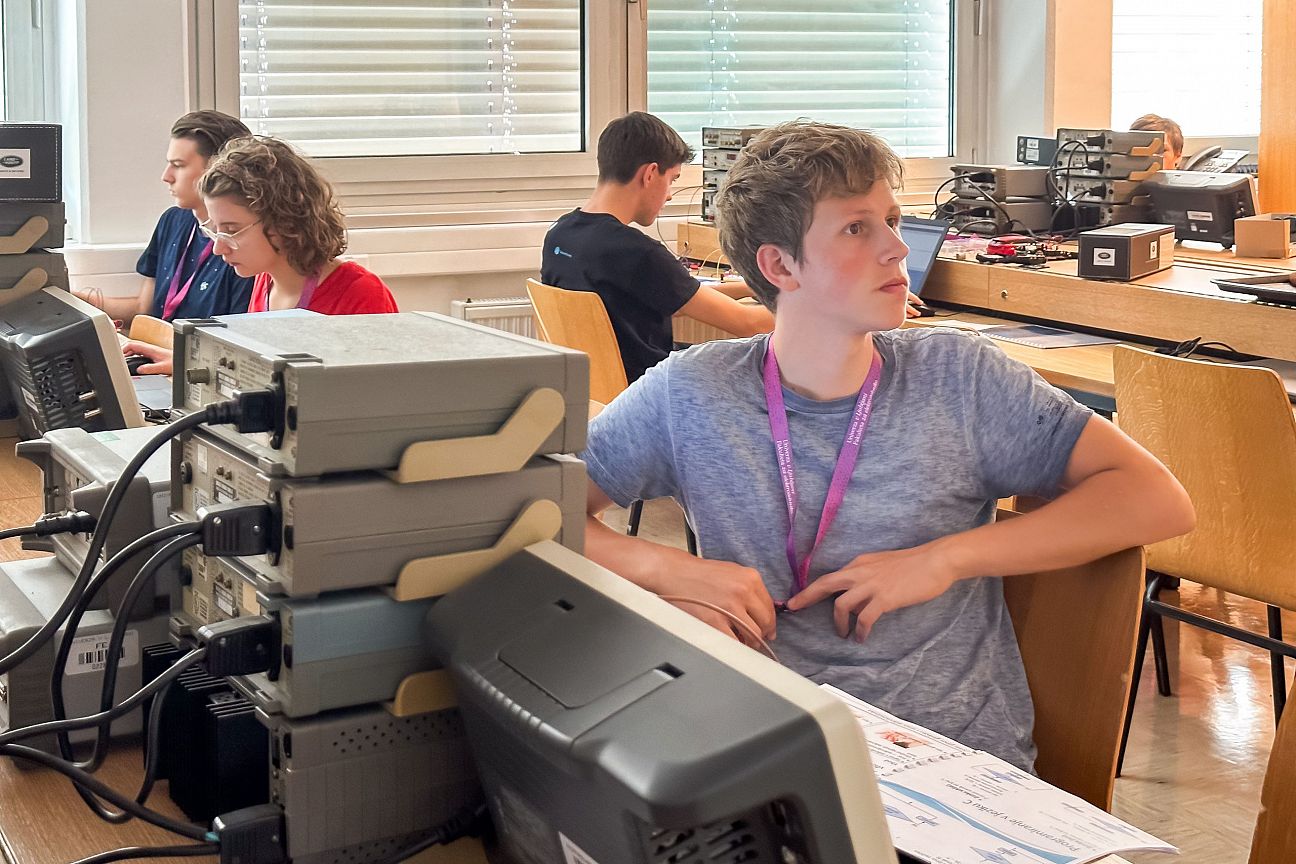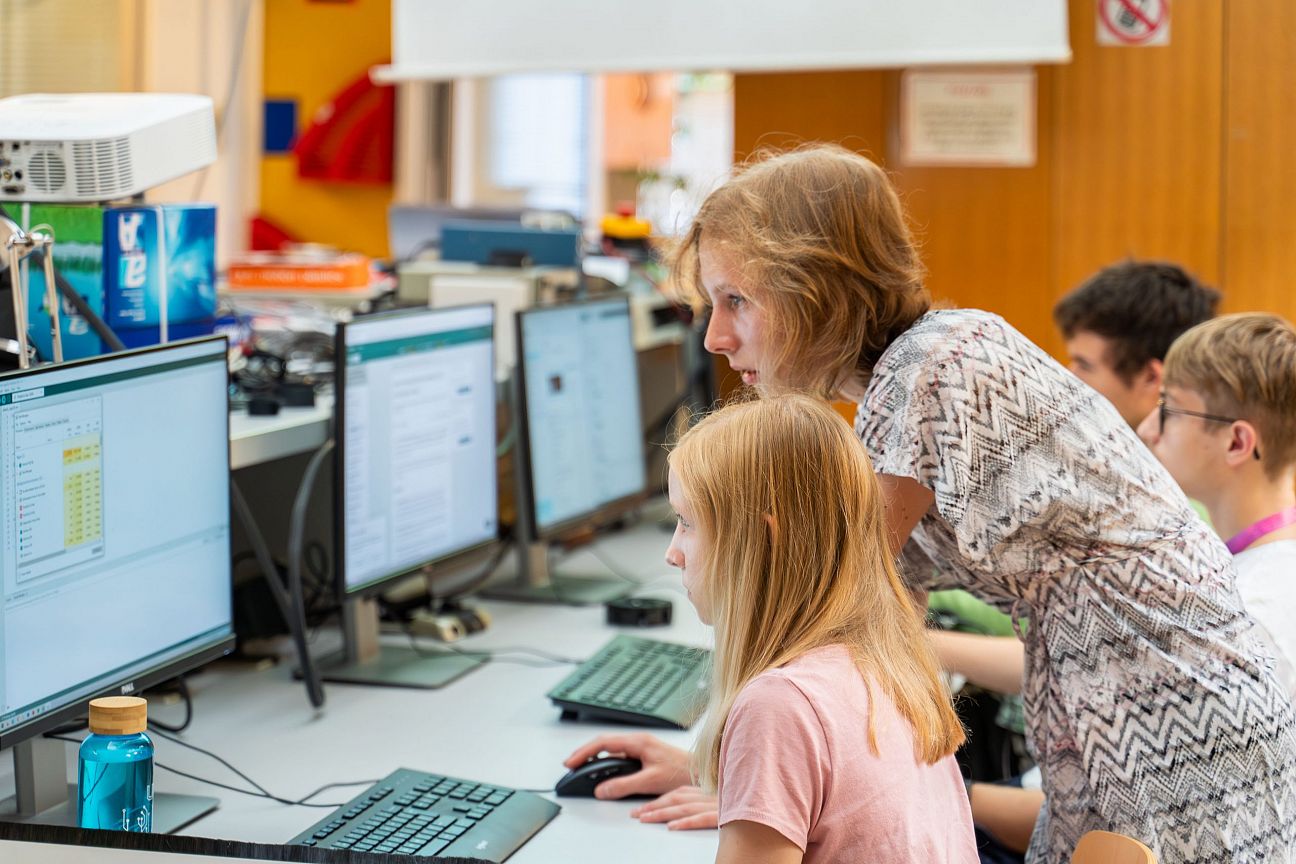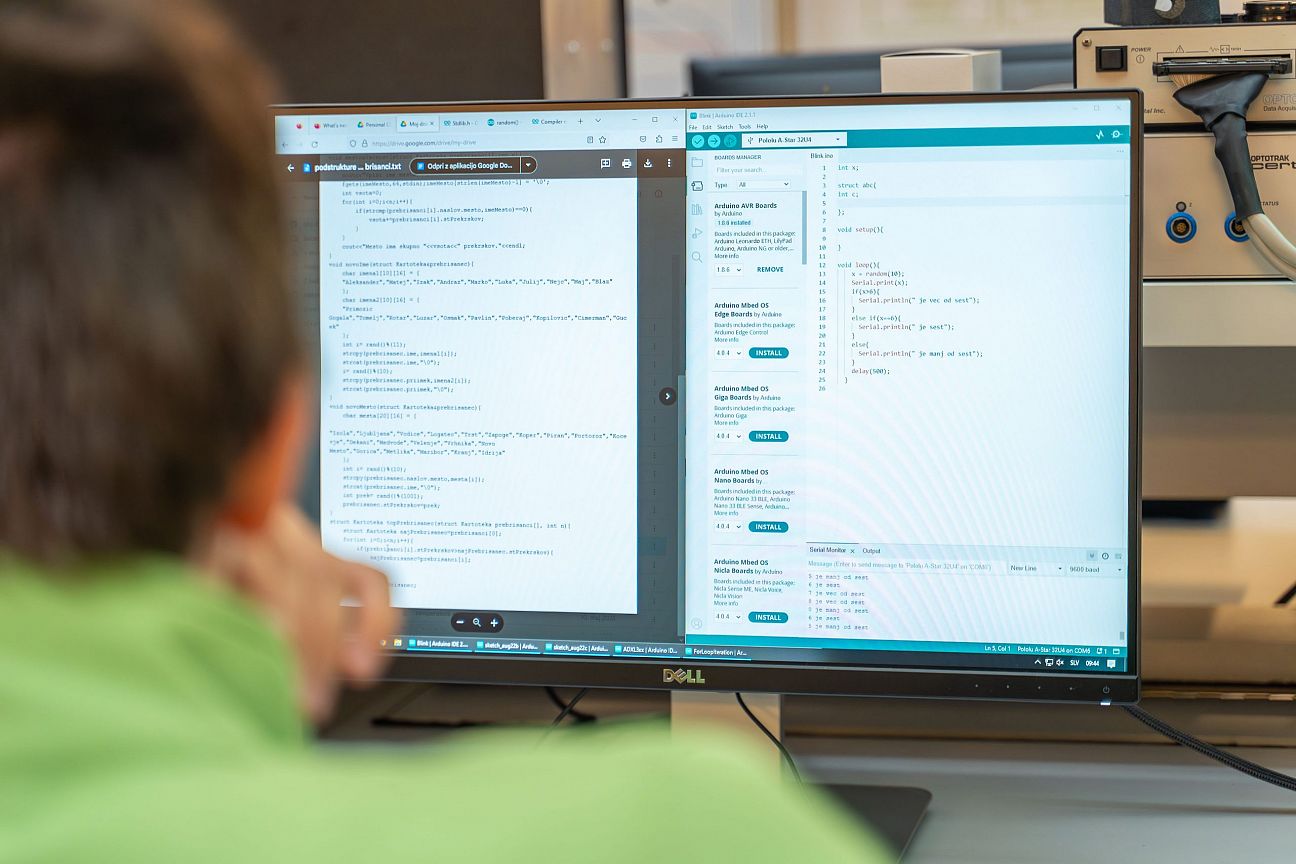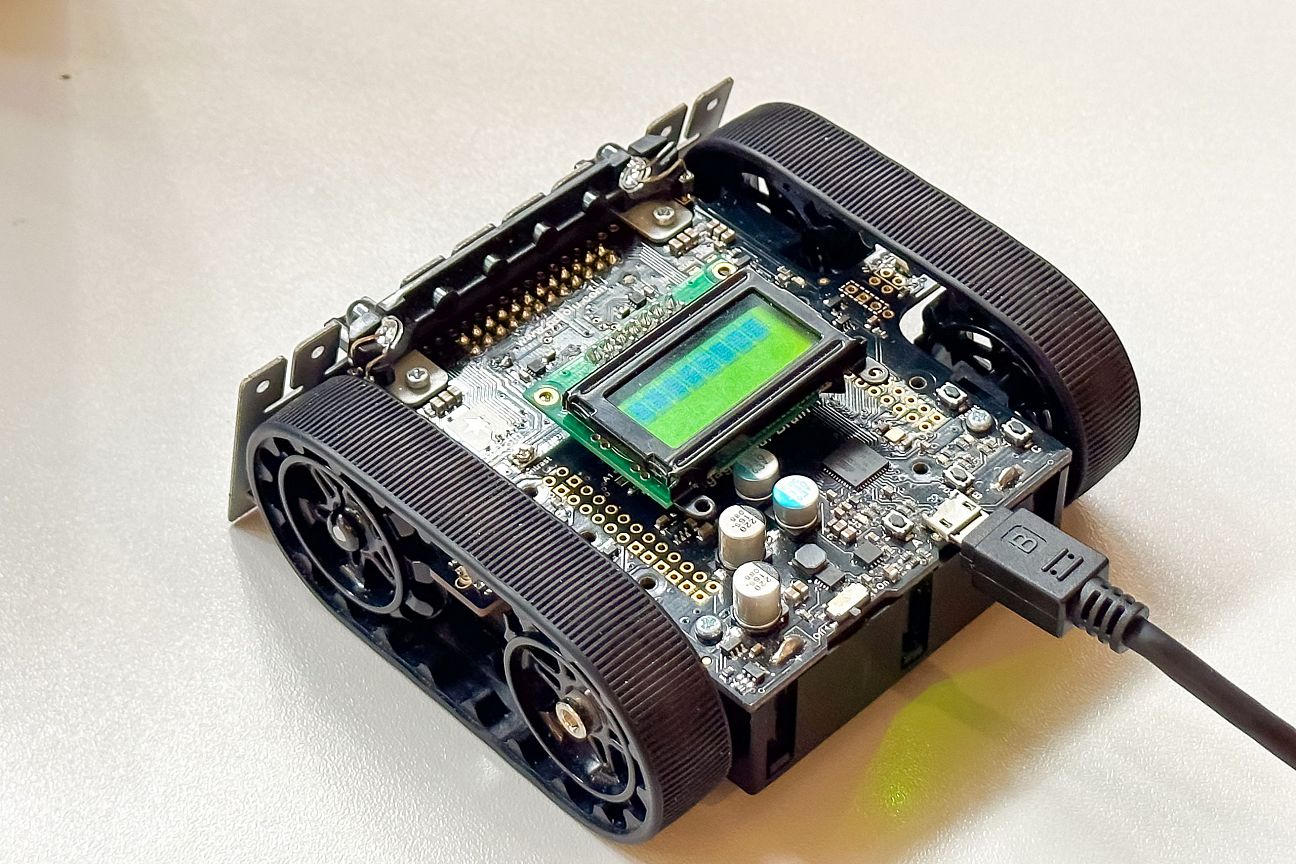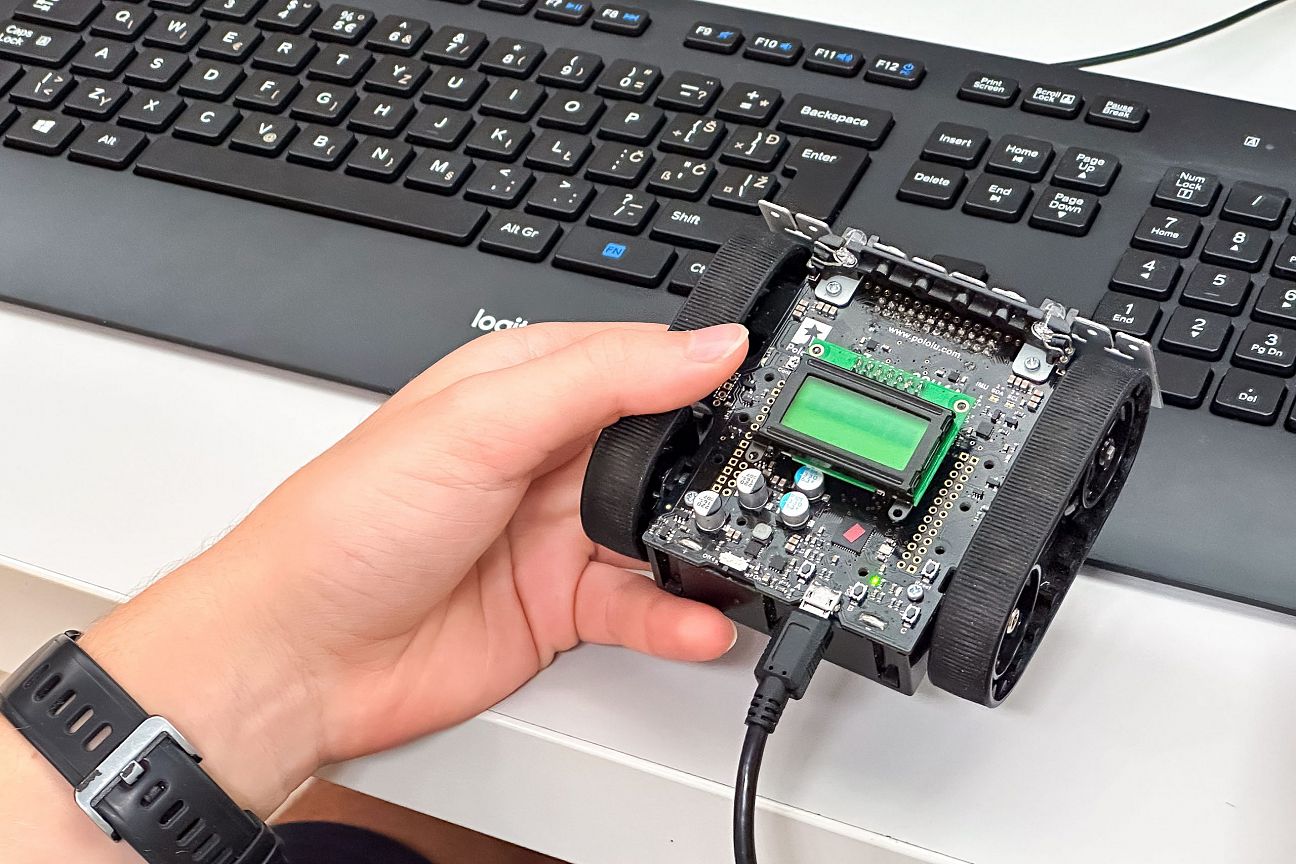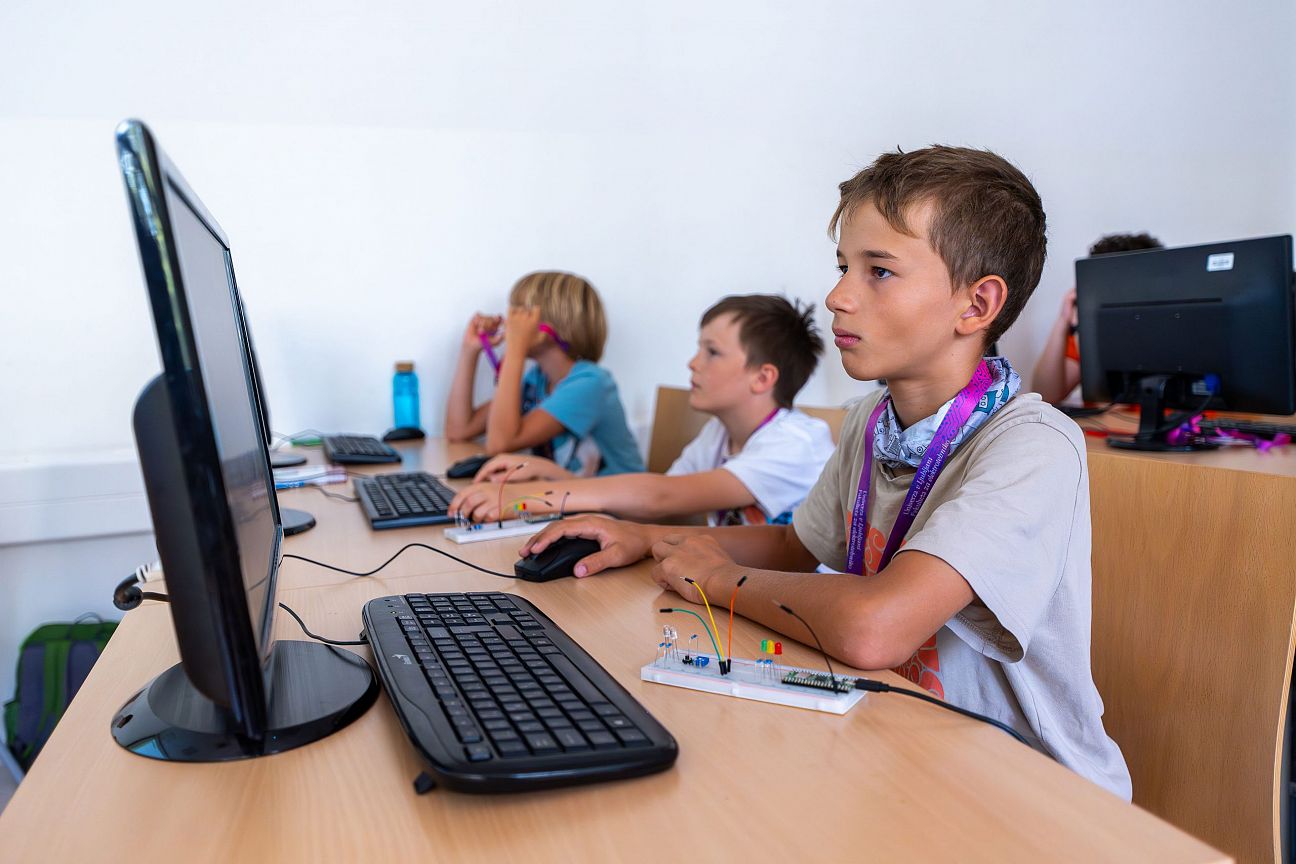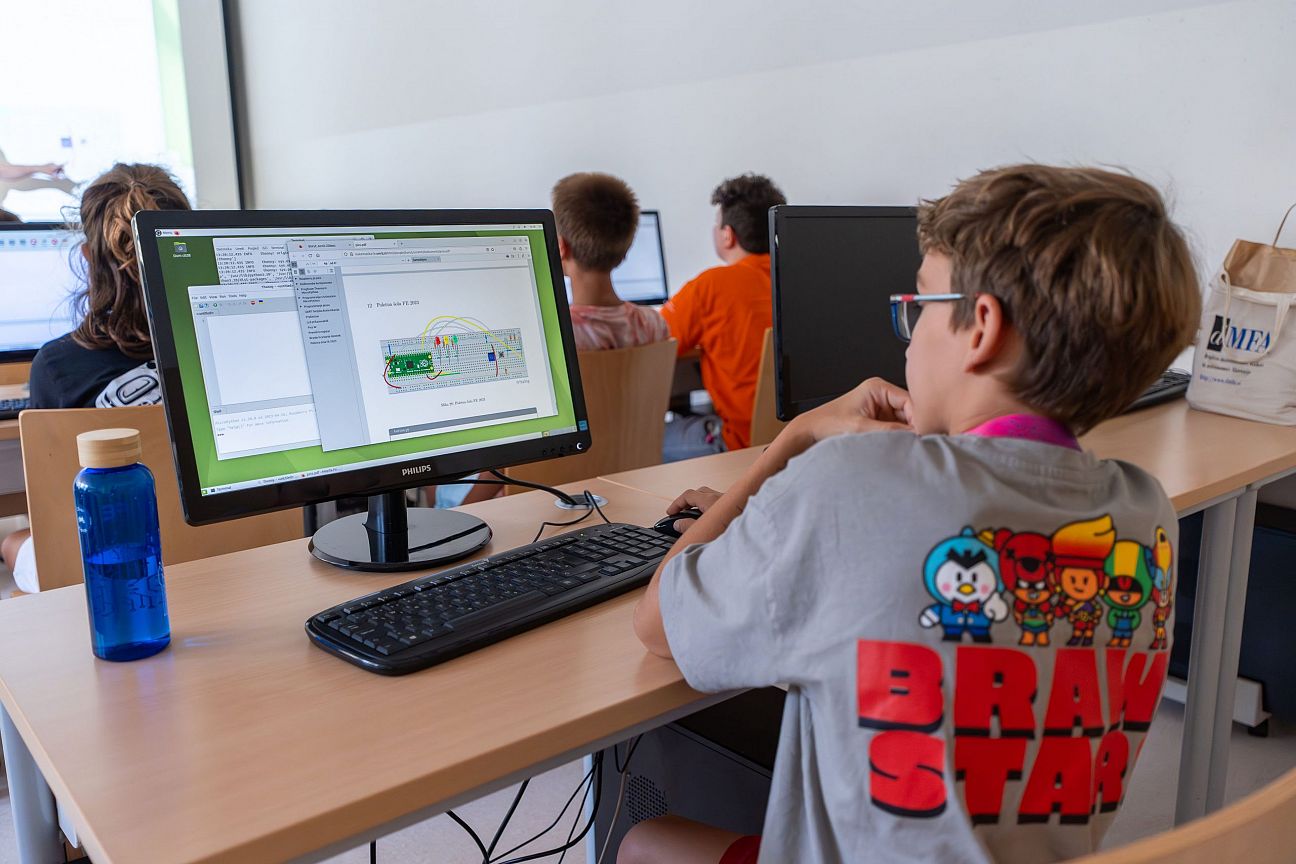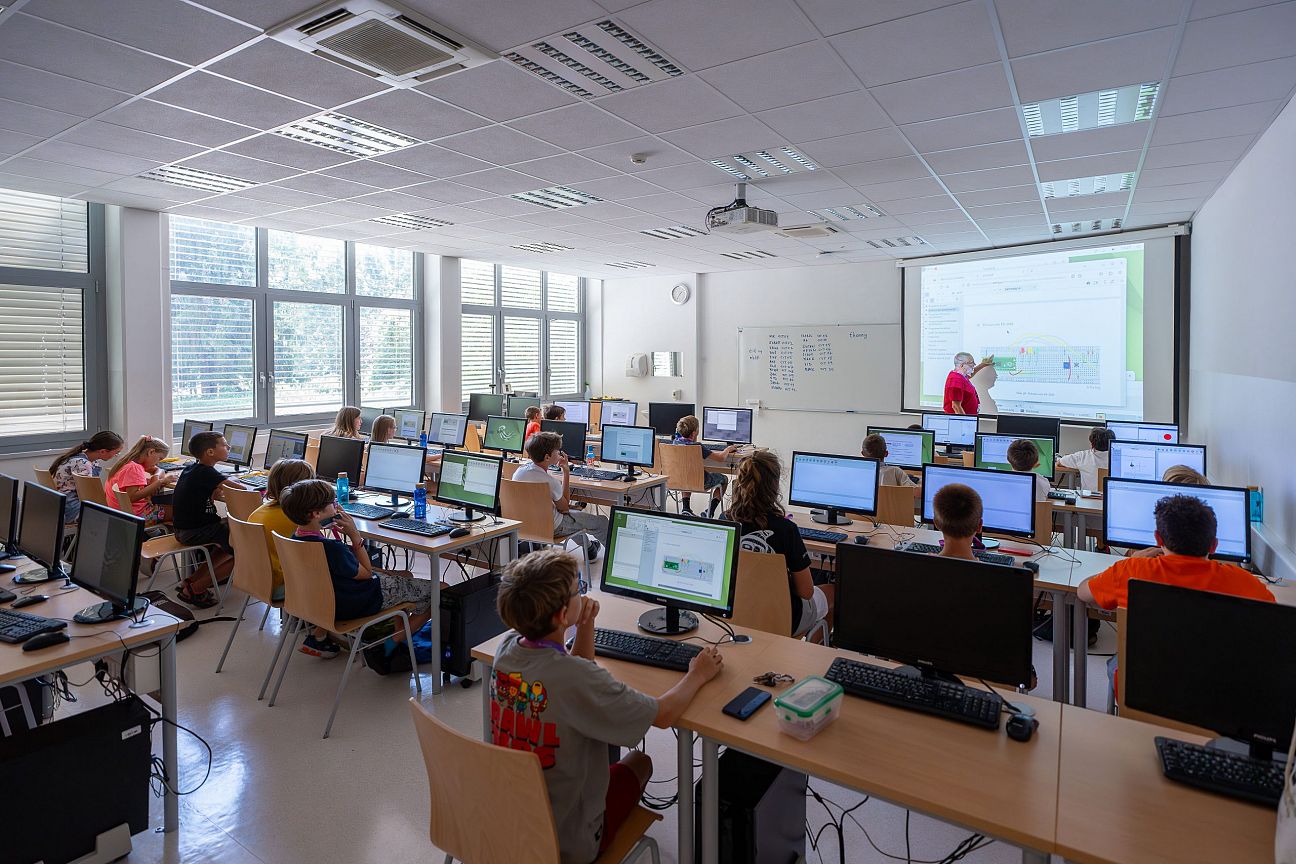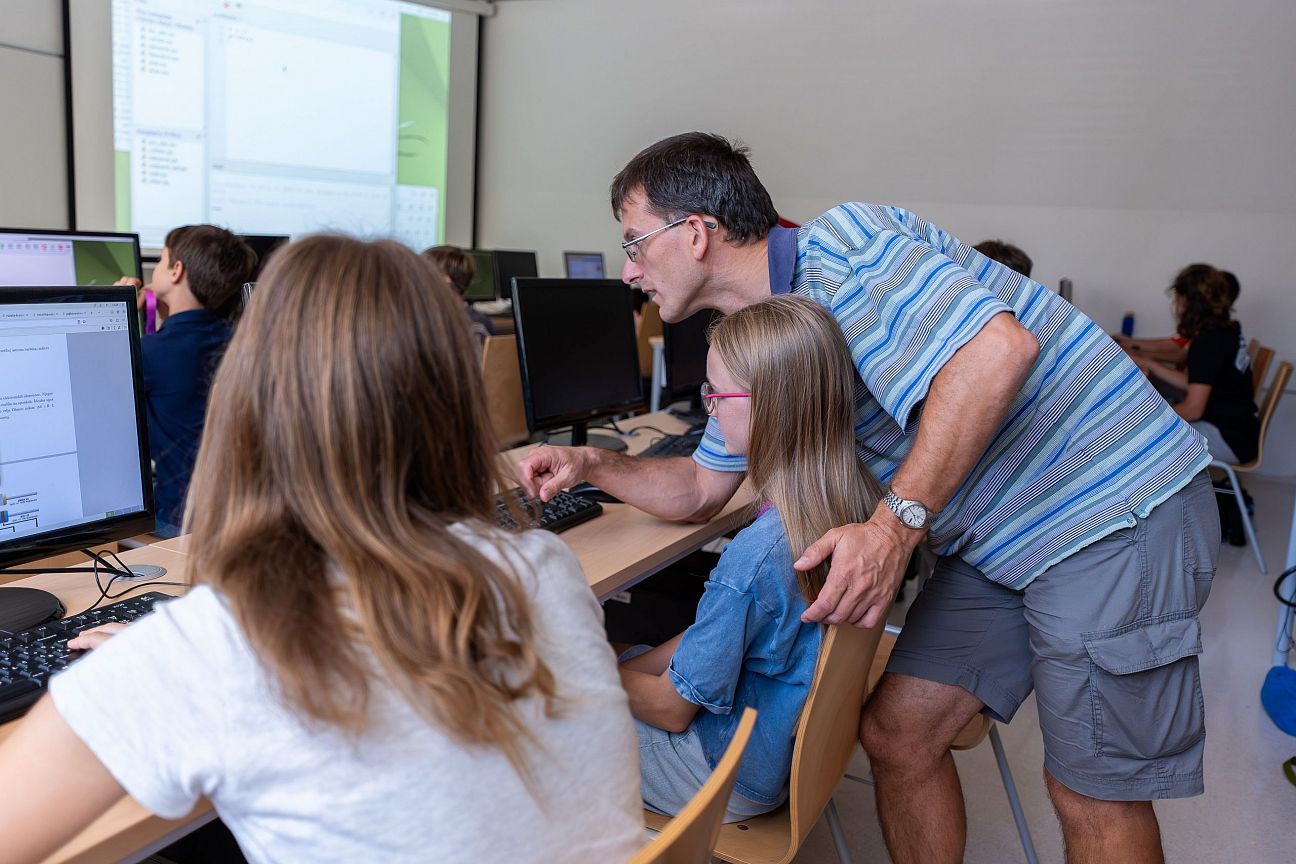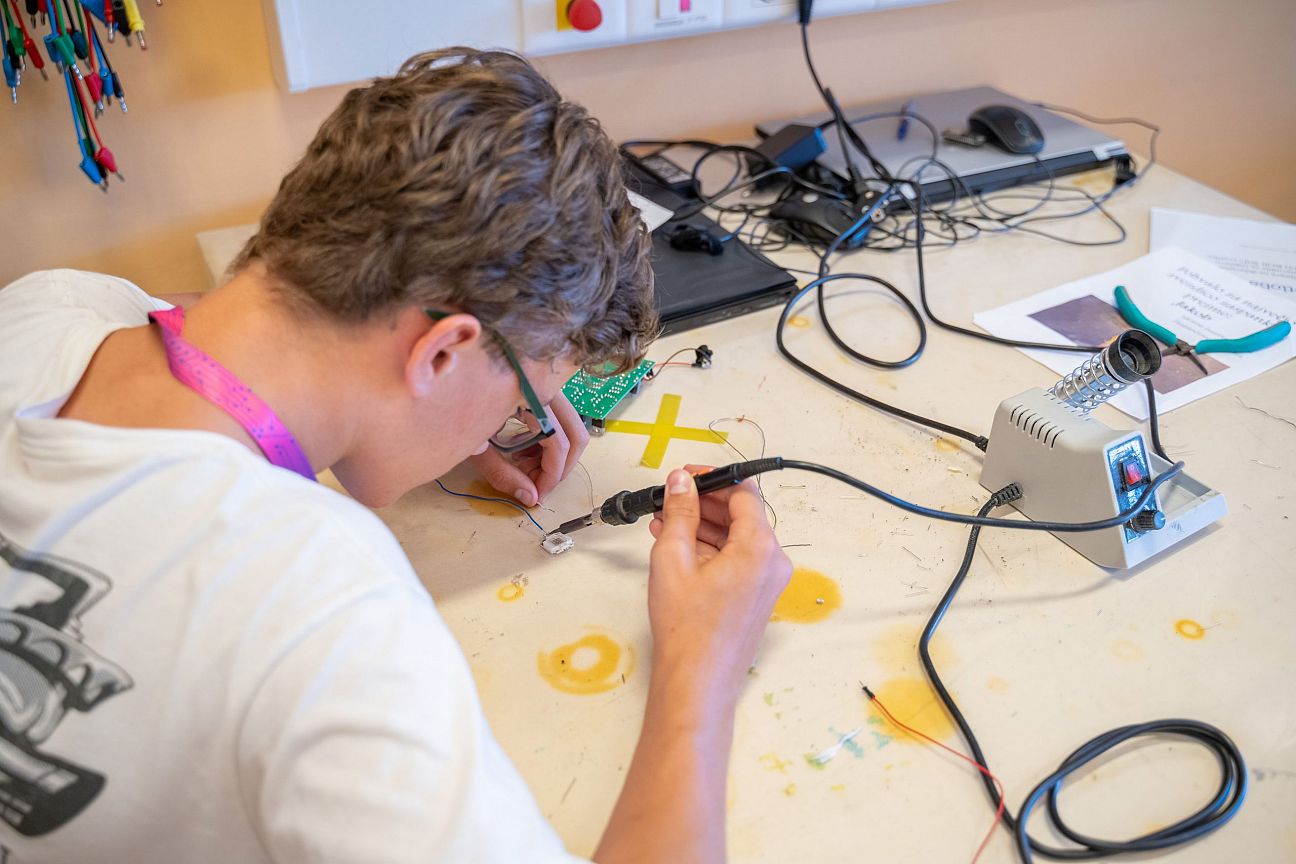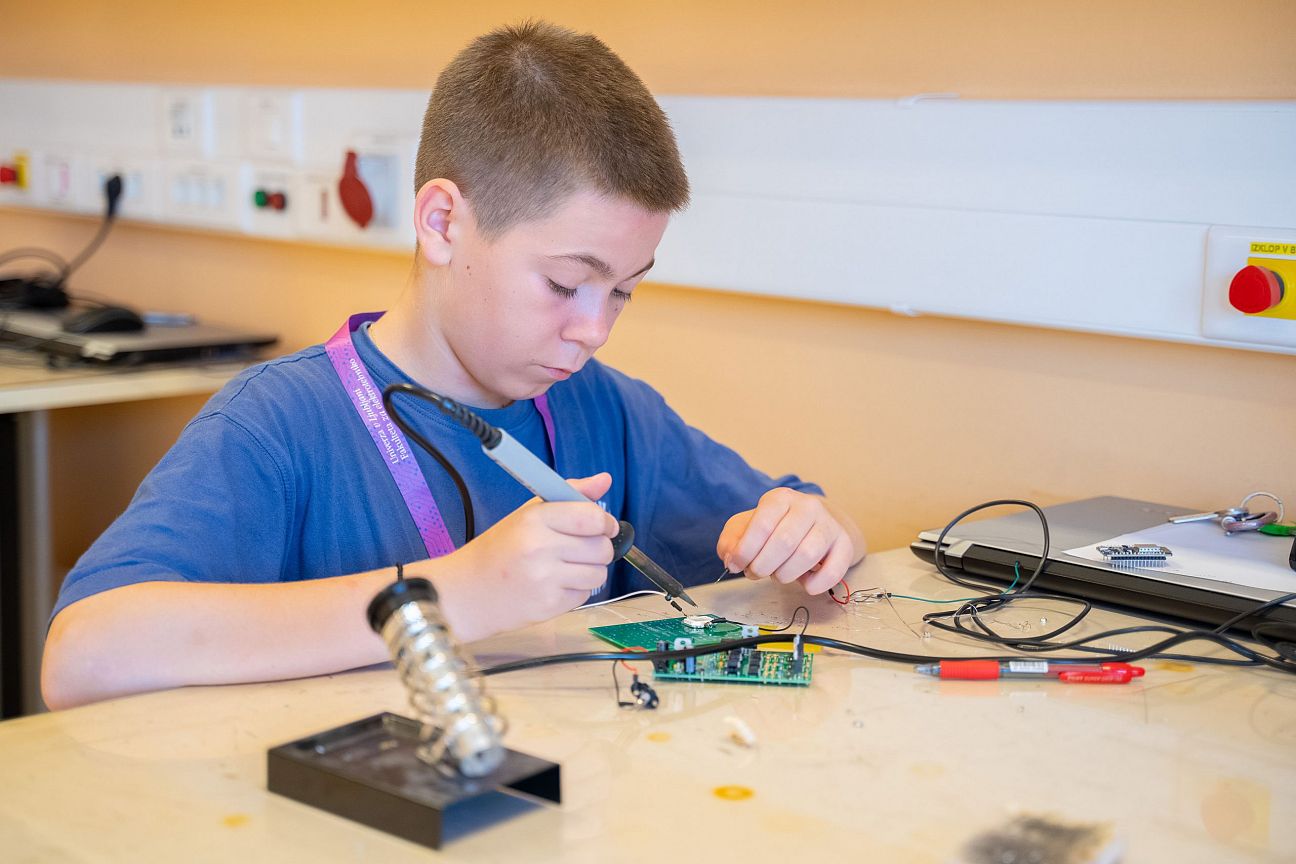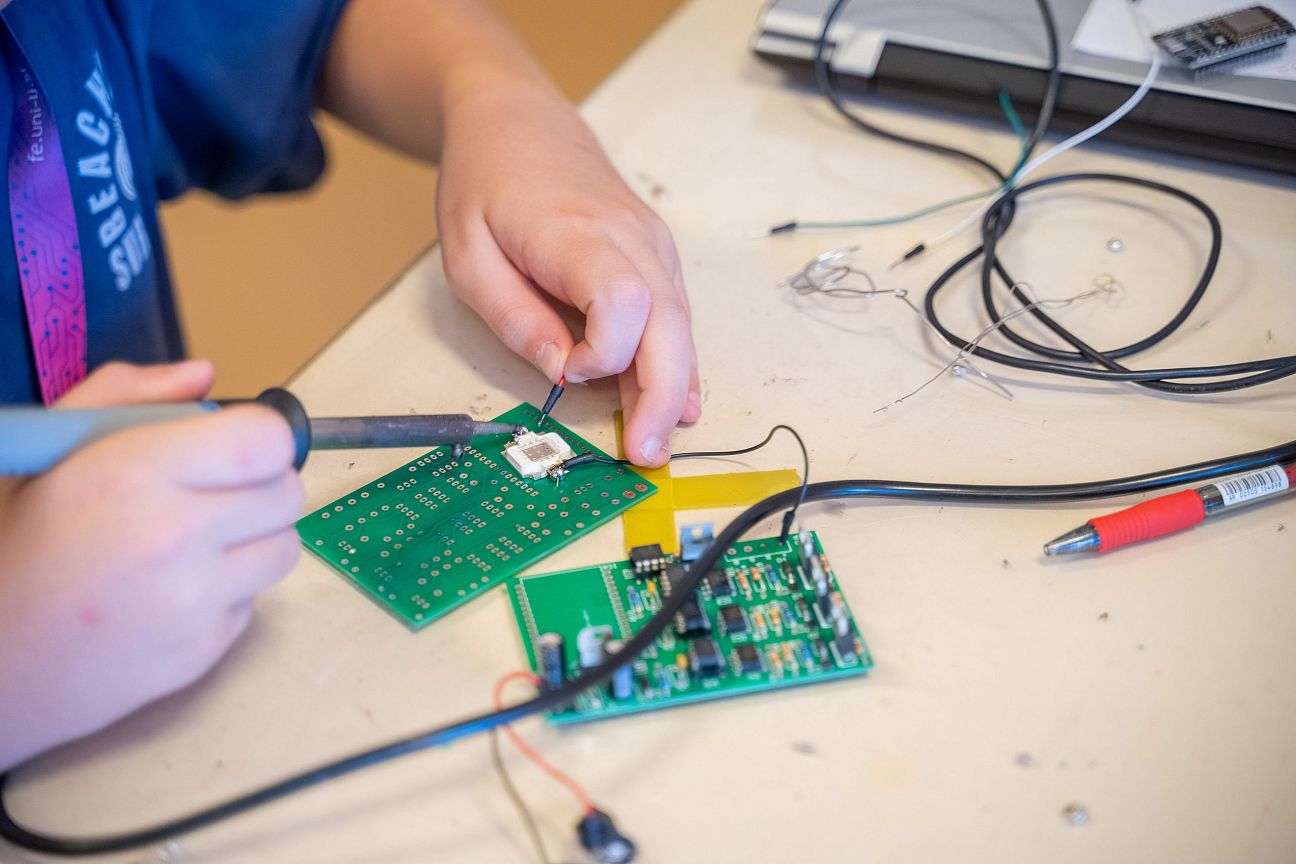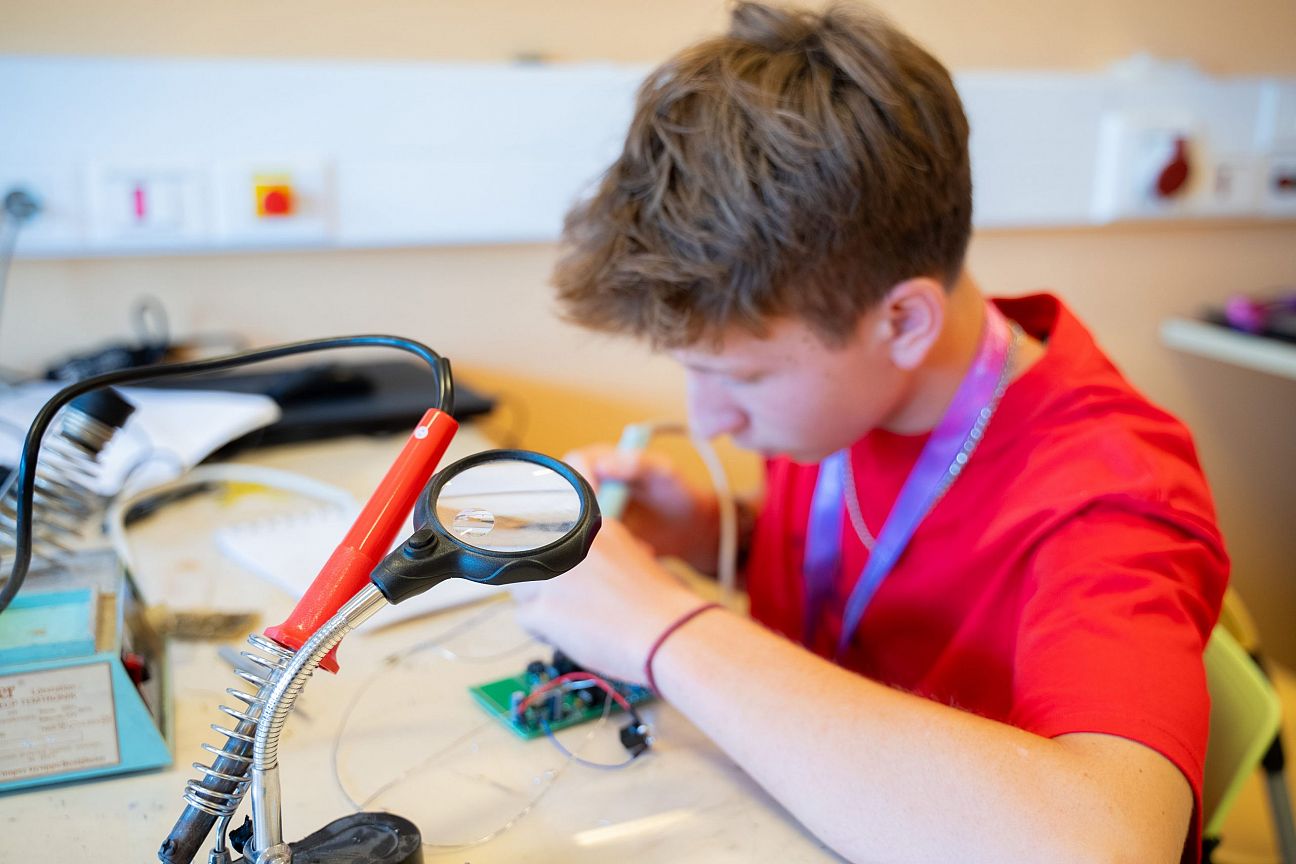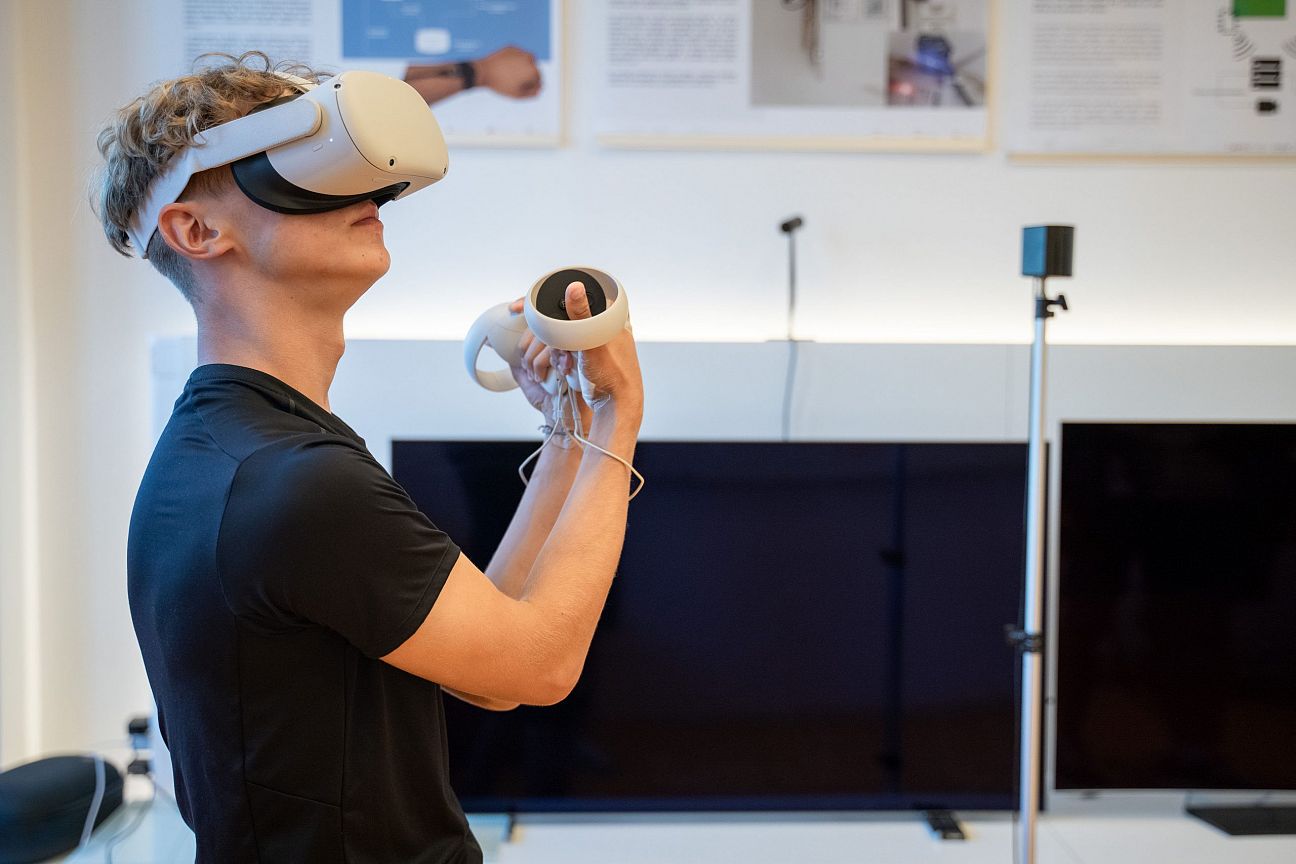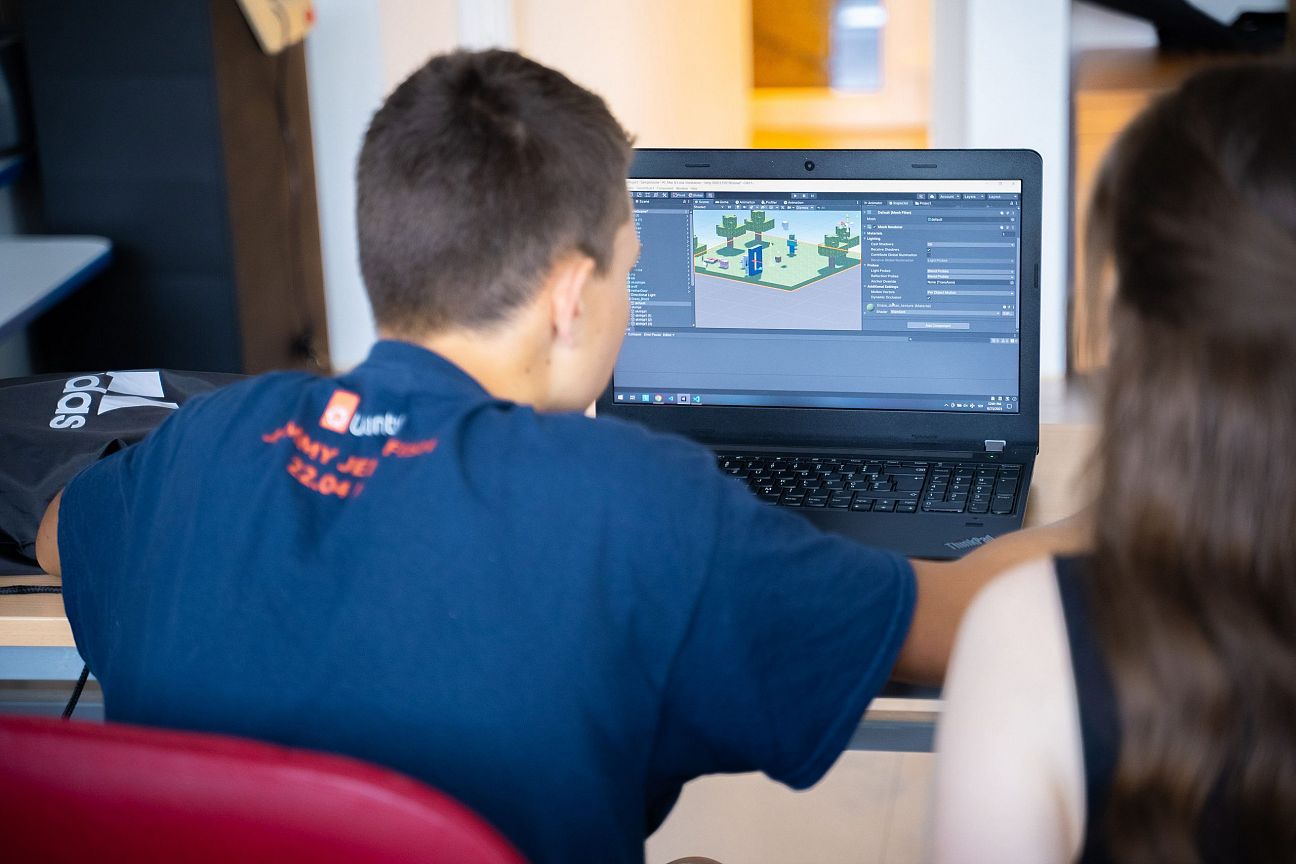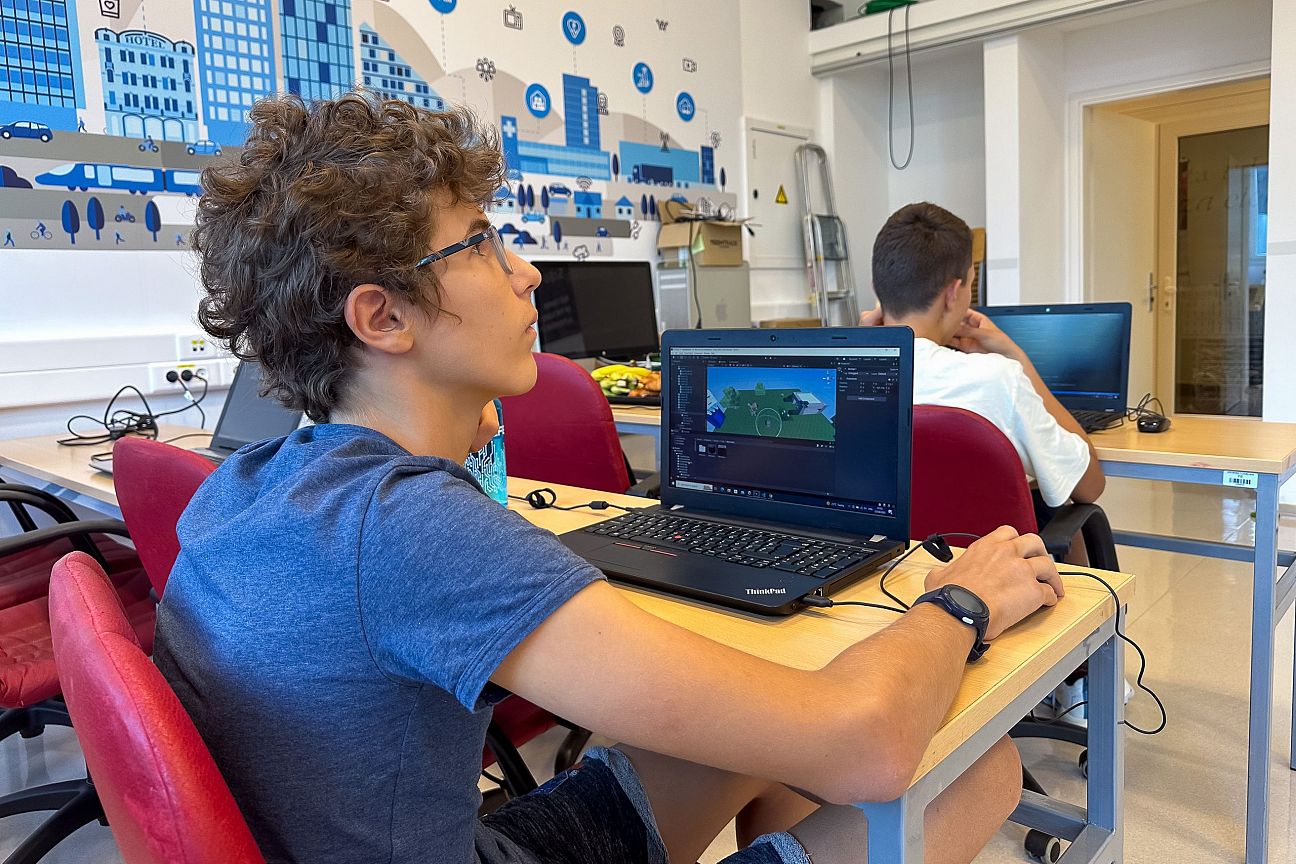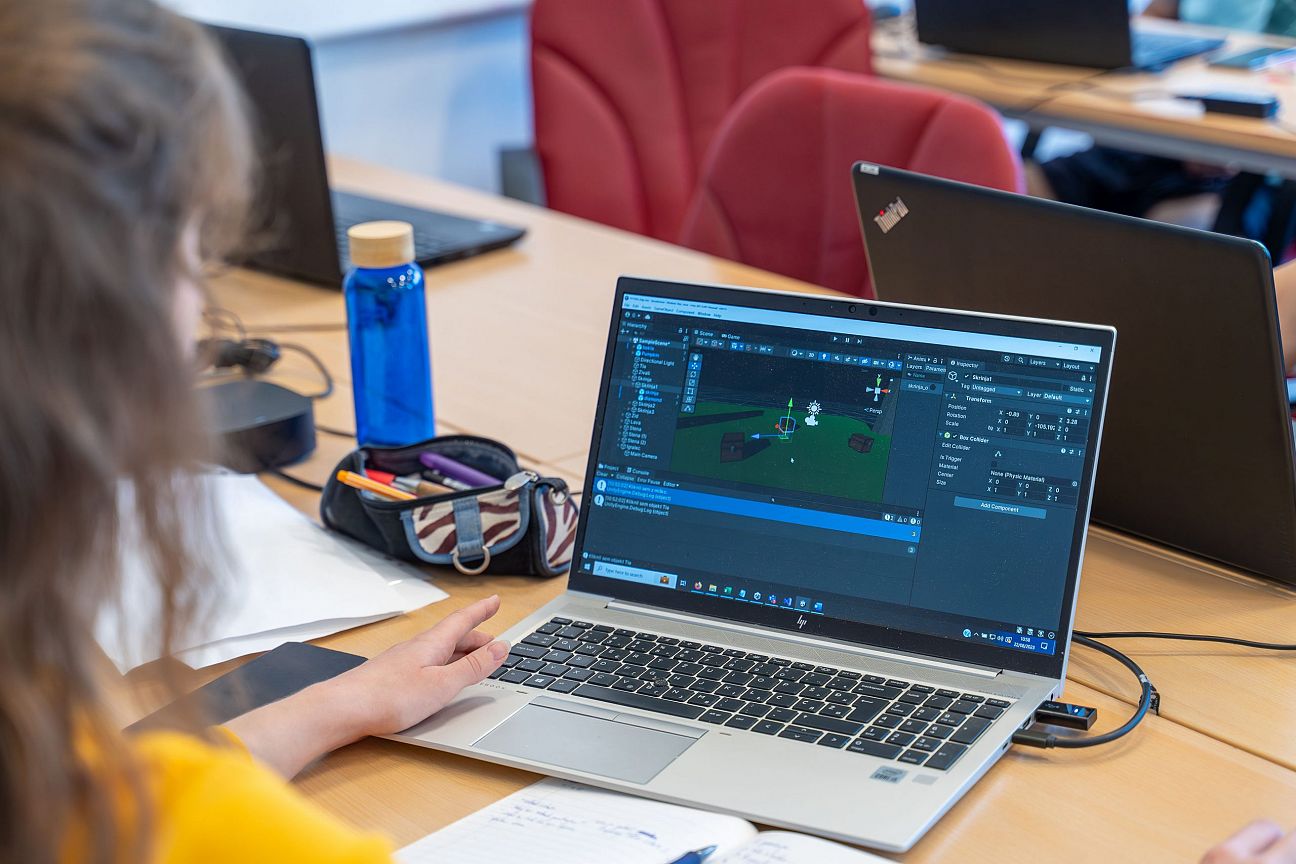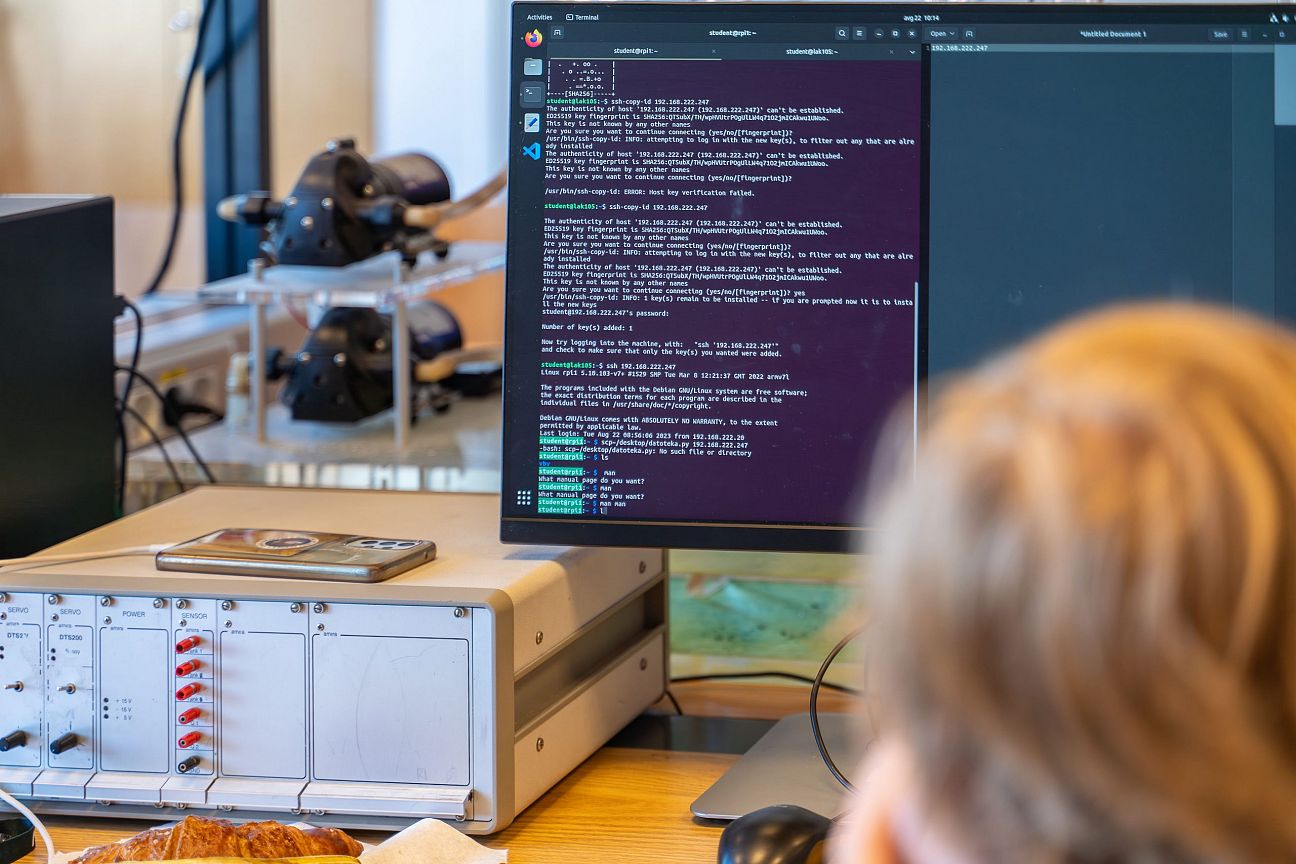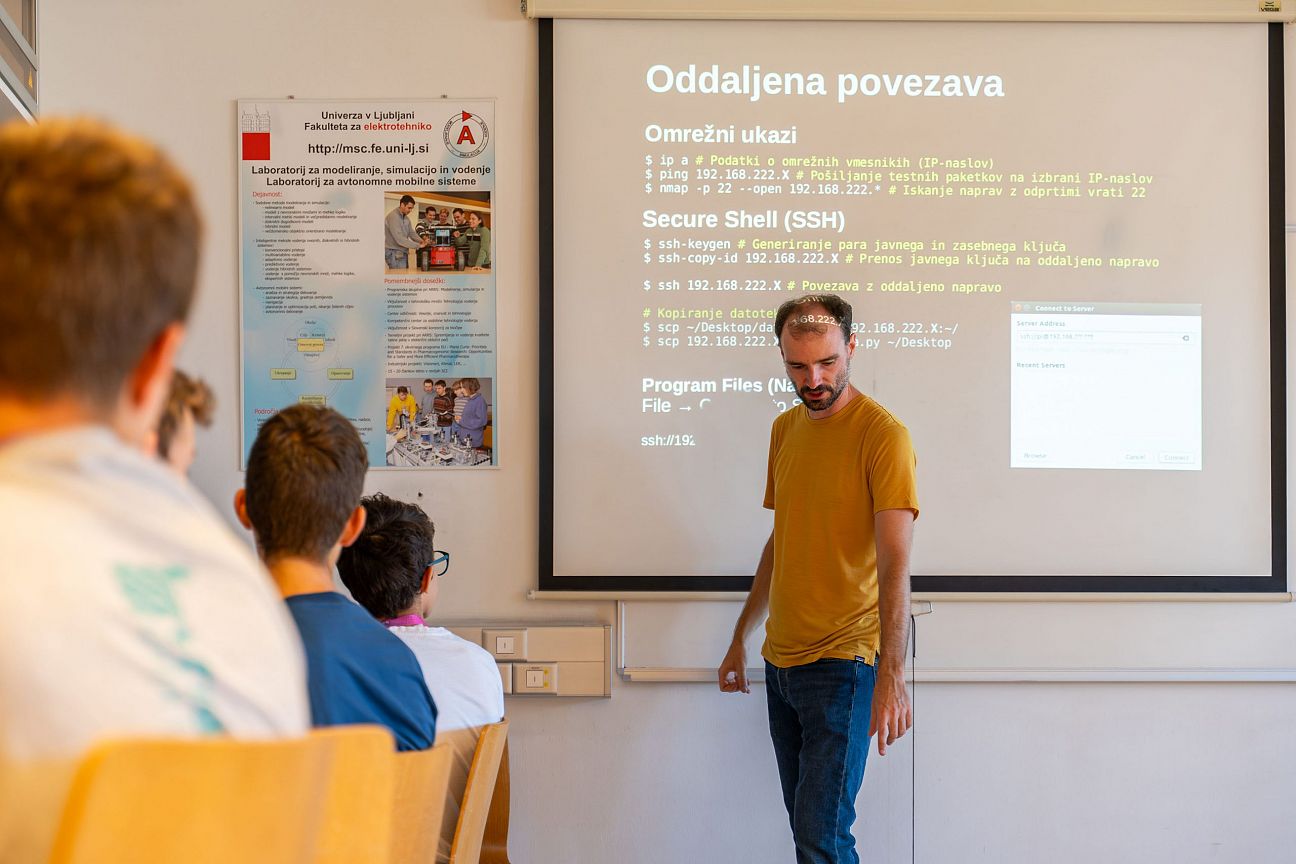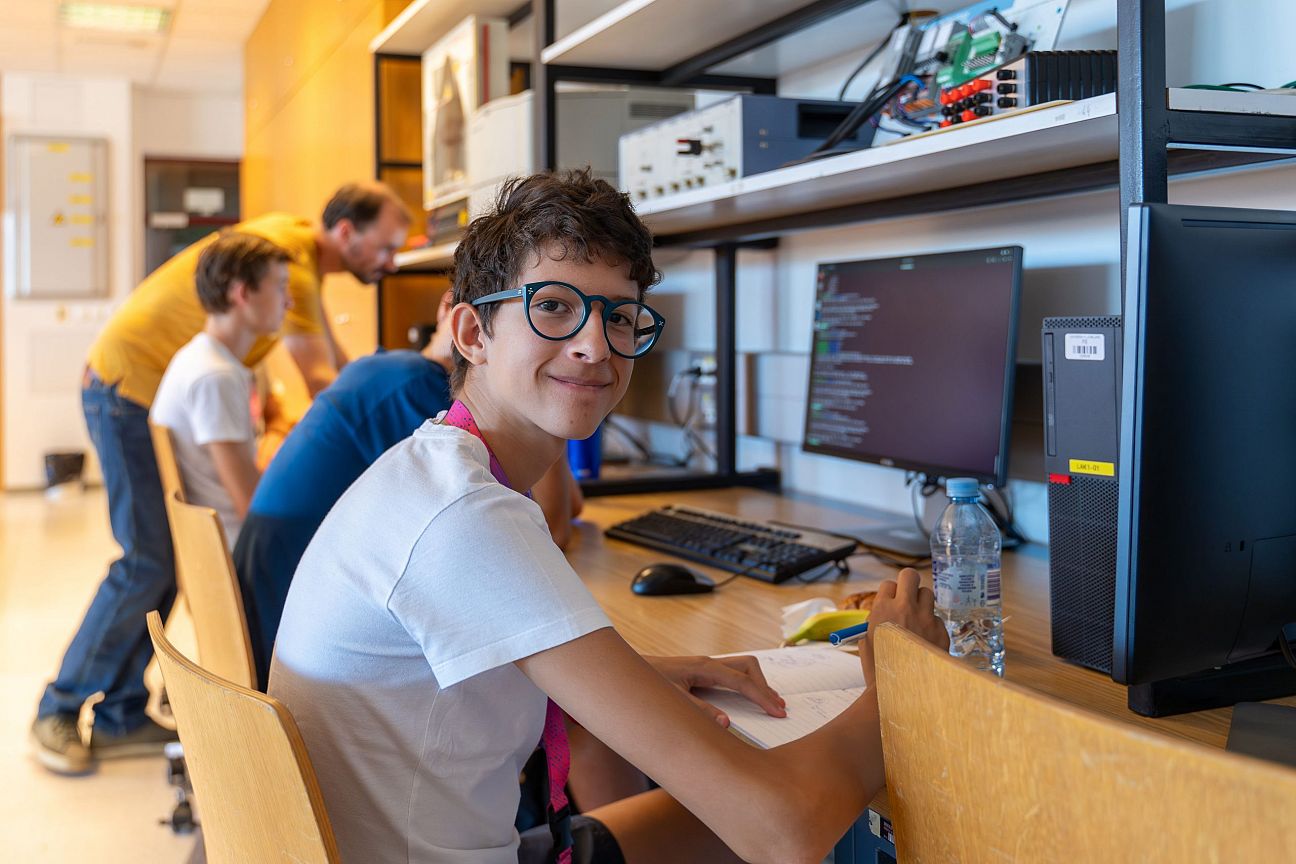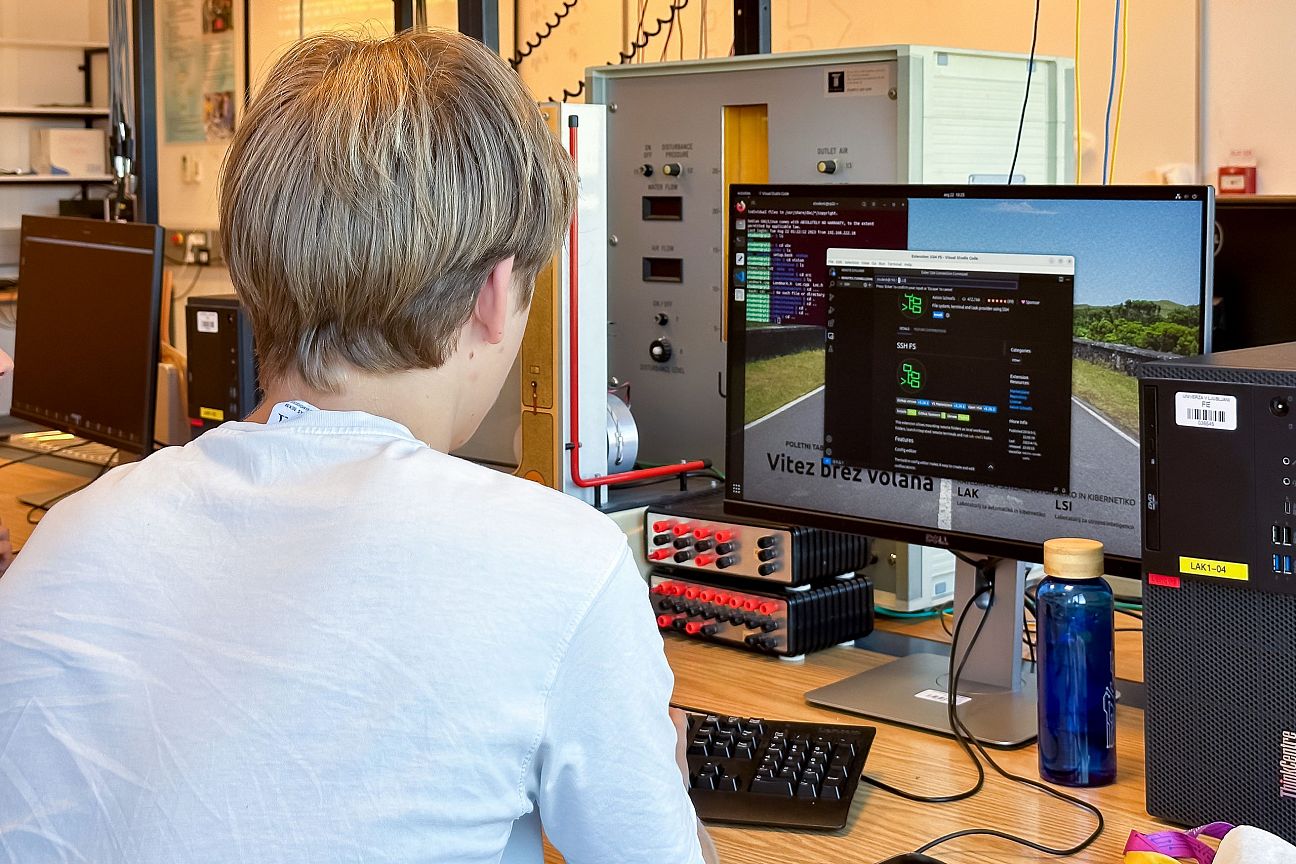Summer camp to build new skills - PTIT 2023
Date of publication: 29.8.2023The 24th Innovative Technologies Summer Camp took place at the Faculty of Electrical Engineering, University of Ljubljana, from 21 to 25 August, with 104 children participating in 11 different workshops. Under the guidance of mentors, participants explored the world of modern electrical engineering and multimedia and met some high-tech companies and institutions.
Participants in the LEGO Stormtroopers workshop were introduced to the basic concepts of controlling autonomous mobile systems and to the technical and software features of Lego Mindstorms EV3 kits. To complete the task, participants had to design, build and program mobile systems. By the end of the workshop, they had mastered skills in sensors, mobile system control concepts and programming. At the end of the workshop, participants competed with their systems in a friendly competition.
"I really enjoyed the workshop. I had a lot of fun building and programming the LEGO robot", said one participant.
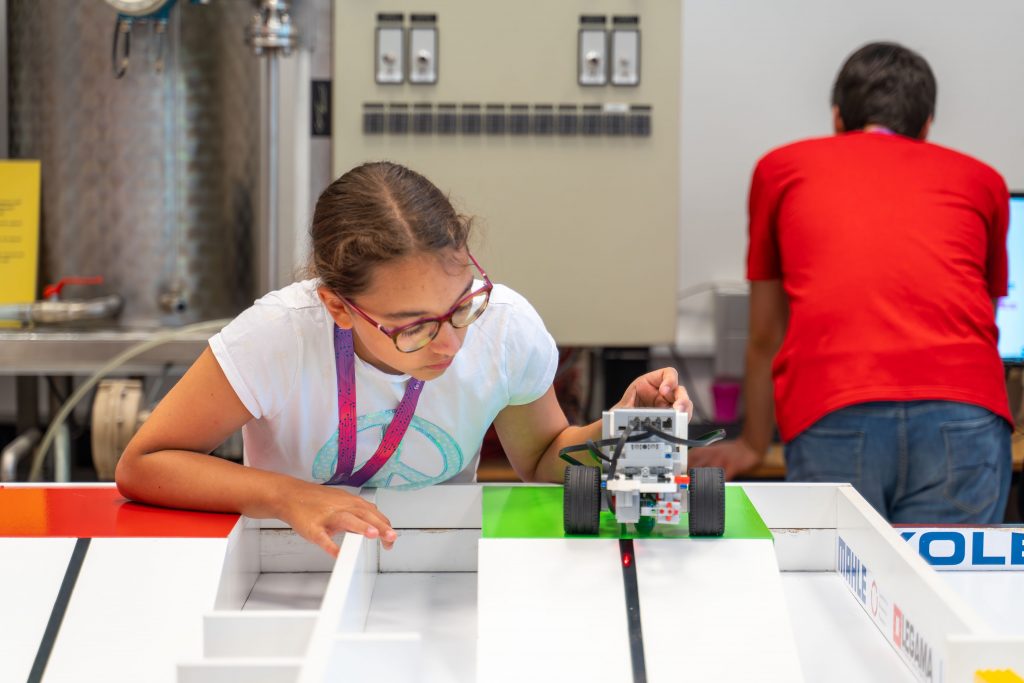
The Electric Vehicle Workshop introduced participants to the key features of electric vehicles. They explored how to select the individual components of an electric bicycle, and verified their theoretical background through experimental measurements. They checked the functioning of the individual components, fitted them to the bike and verified the performance of the electric bike! During the excursion, the workshop participants also got to know SŽ Traction and Technics.
One participant really liked the tour of the SŽ Traction and Technics company and the workshop. "It was great because of the high-tech trains and driving them on the test track".
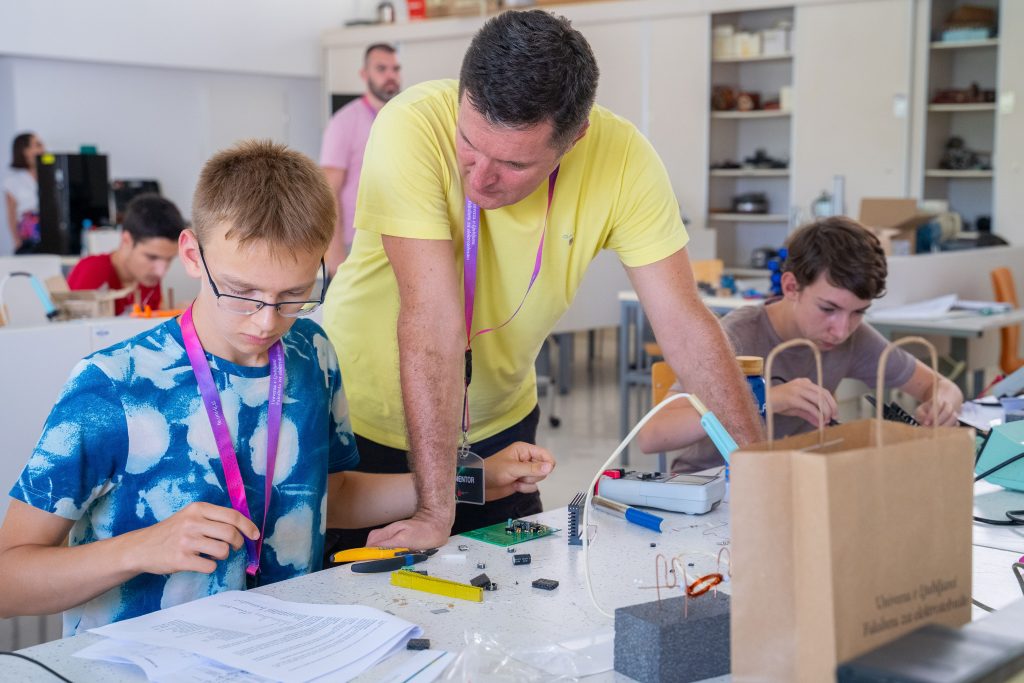
The Knight Without a Steering Wheel workshop introduced participants to the field of autonomous mobile systems and artificial intelligence. They worked in groups on robotic vacuum cleaners equipped with their own Raspberry Pi embedded camera system. The camera on the mobile system was pointed towards the ceiling, where a network of special badges was produced. The badges' positions were entered into a machine vision localisation program, which detected the badges' positions in the image and continuously recalculated the mobile system's position in space. The participants developed a program to control the mobile system with a keyboard, and then used the position information to write control algorithms to autonomously drive the mobile system between different targets in space. Using the sensors on the robotic vacuum cleaner, they also implemented an algorithm to automatically guide the mobile system along a line and to act appropriately when obstacles are detected. The workshop also taught them the basics of speech recognition and speech synthesis, which allowed them to implement a system for voice communication with the mobile system in Slovenian. The speech recogniser was used so that when the mobile system received a voice command, it performed a specific action, and the speech synthesiser enabled the mobile system to respond to the user. They also wrote different algorithms to control a coloured LED strip, which was mounted on the front bumper of the mobile system and indicated the current actions of the mobile system with light signs.
One participant said of the workshop, "I really liked it because I learned a lot about programming".
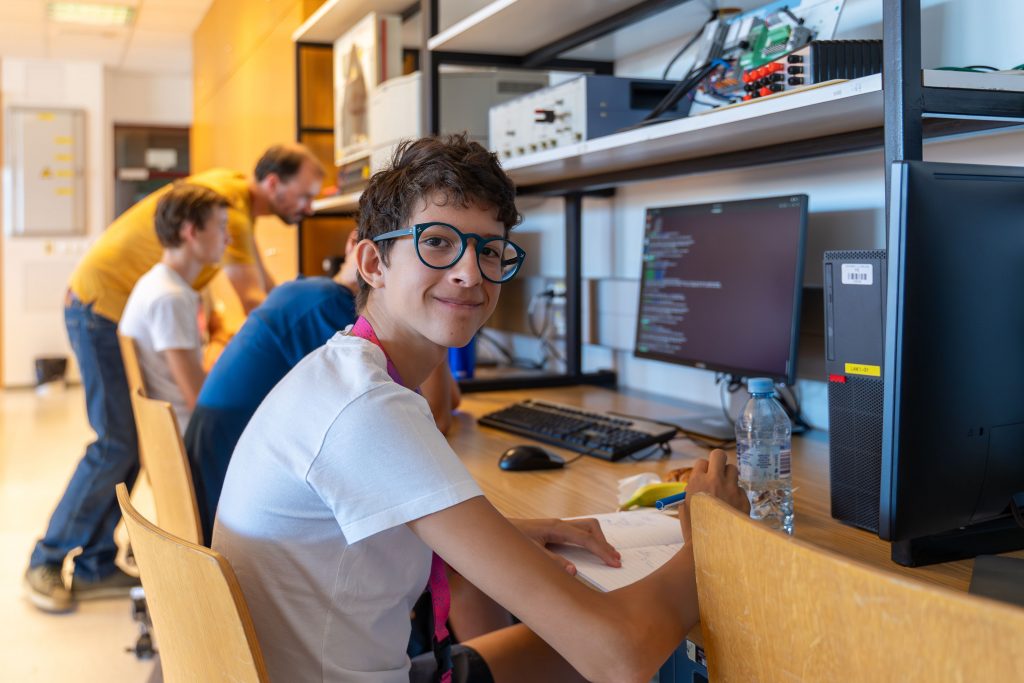
RoboSumo workshop participants learnt how to use and program conventional industrial and collaborative robots. After an introductory lecture covering robotics and robotic terms, participants started hands-on work on collaborative robots, where they built a working robotic application. They also learned about programming mini sumo robots (from basic programming to tactics for sumo fights) and participated in a mini robo sumo tournament! As part of the workshop, participants also visited Iskraemeco.
"I really enjoyed the excursion as we saw and learned a lot of new things. We had a good guide at Iskraemec who really went the extra mile", said one of the workshop participants.
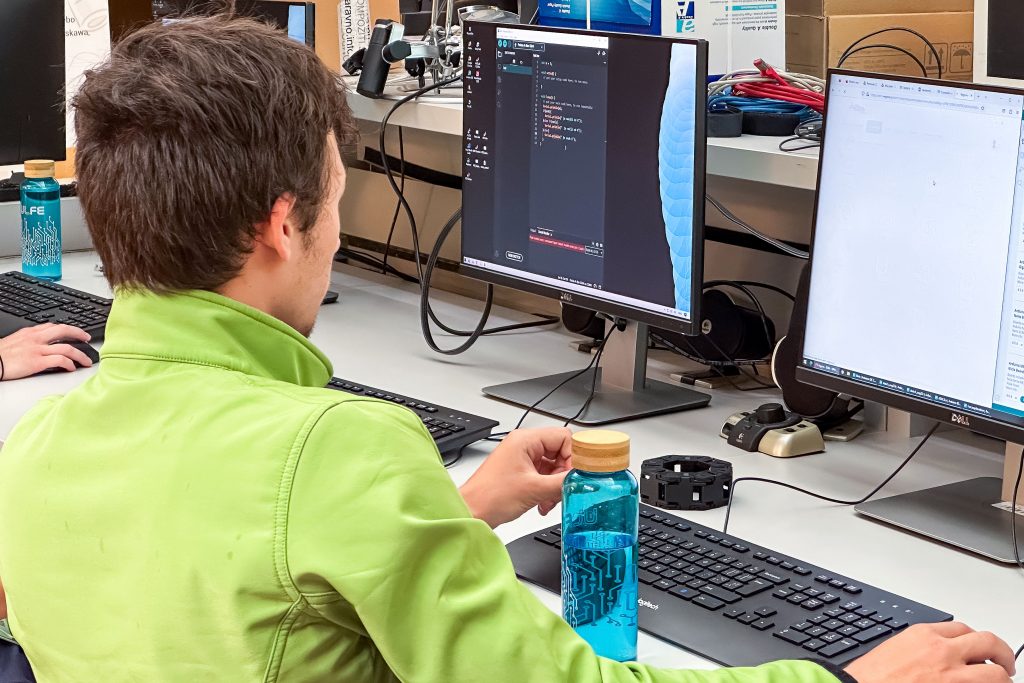
At the ScratchMasters workshop, participants learned the basics of programming with blocks in CODE, SCRATCH and MICRO:BIT programming languages. Although Scratch is basically very useful for programming games, participants used it to learn programming techniques. Participants learned how to draw, use loops, conditional statements, messages and cloning. They built interesting programmes in geometry, iterations, recursion, dialogues and quizzes. Participants were also given a BBC Microbit microcomputer with a display on which they executed programmes written in Micro:bit. At the end, each participant presented their project.
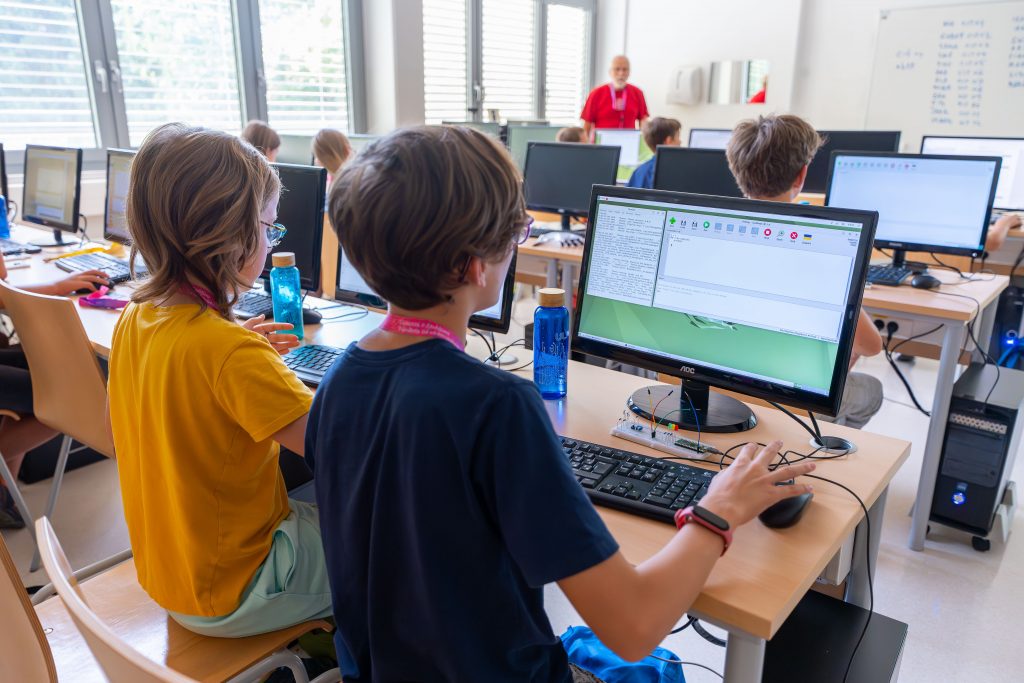
Participants of the VIRTUAL= ENTERTAINMENT workshop, organised by the Faculty in cooperation with the Sieva Development Centre, learn about new technologies of augmented reality (AR), mixed reality (MR) and virtual reality (VR). Participants received lectures, tried out VR and MR goggles, relaxed by playing VR games and developed their own AR application using the Unity game engine and the Vuforia software tool.
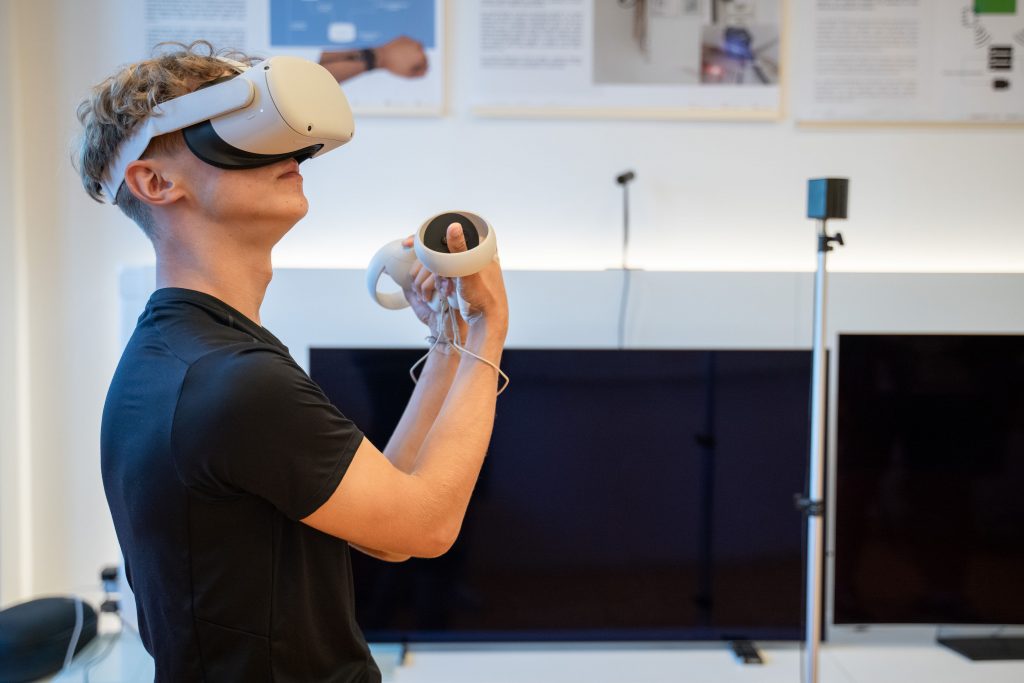
From Electrons to Stars workshop participants learnt about the basic building blocks of electronic circuits and the physical laws that underpin them. They found out that the same laws also determine how some sensors work and then built a sensor for electrical conductors hidden in walls. The workshop also looked at how to use a computer to solve mathematical problems encountered in circuit design and visited an experimental nuclear reactor in Podgorica near Ljubljana.
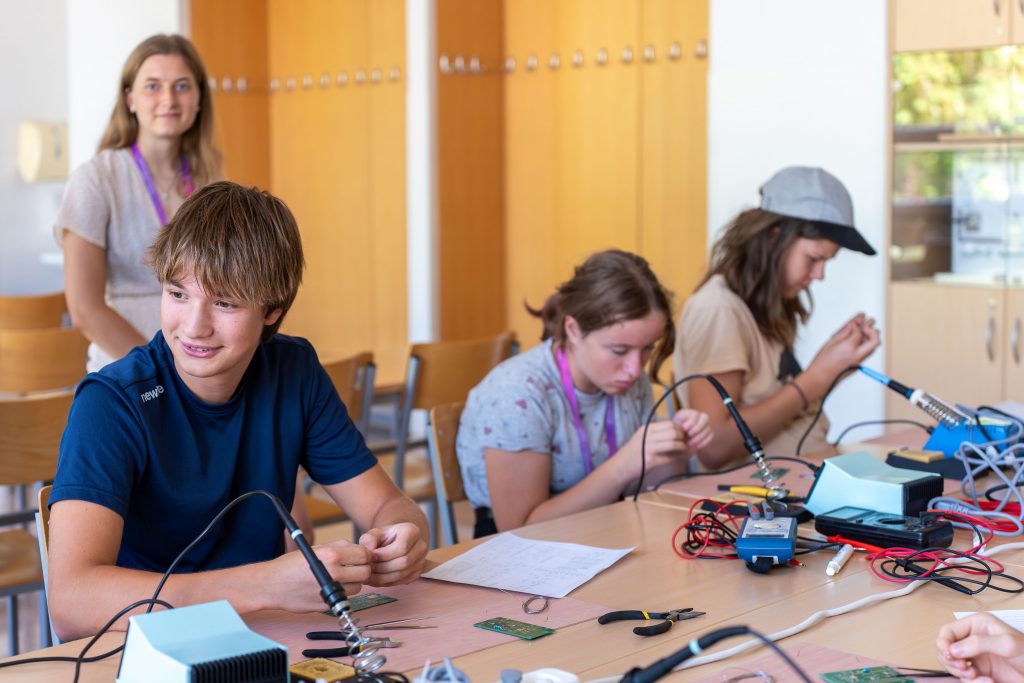
In the Noise Meter workshop, participants learnt about sound, sound perception and made a homemade noise meter. The device was mounted in a poster with an LED strip showing the sound volume in the room. They tested the device in a deaf room, a room without sound and had the opportunity to calibrate their noise meter.
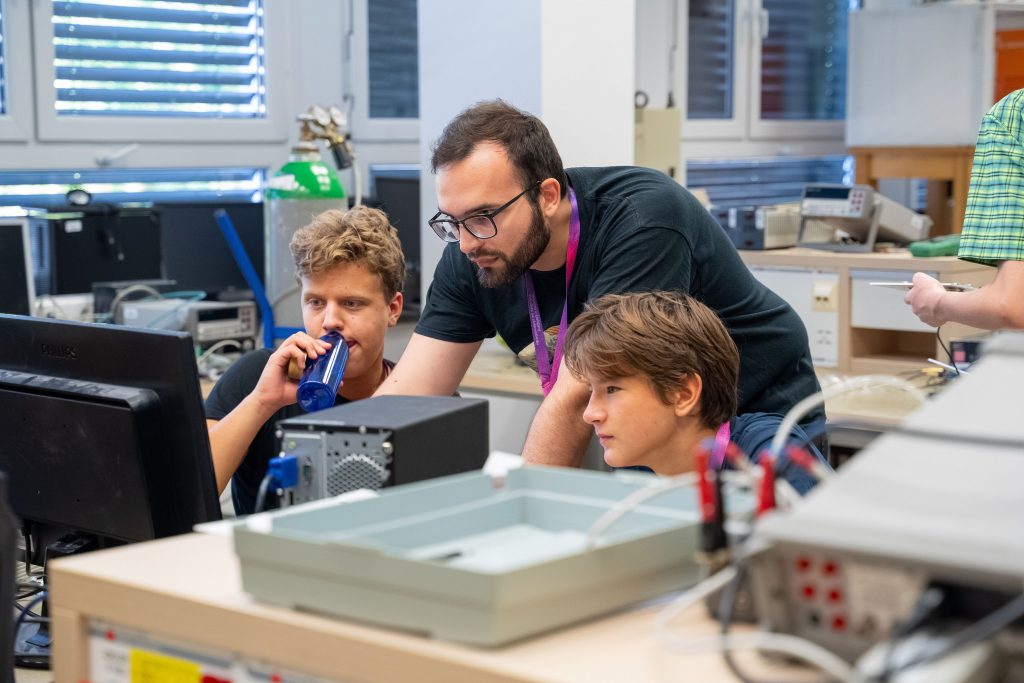
Participants in the Light with Wi-Fi workshop learned how light-emitting diodes (LEDs) work, how to mix light and how to direct light to the right place. With basic knowledge of electrical engineering, they built an electronic circuit to power coloured LEDs, added a suitable controller with a WiFi module and wrote a programme to control coloured LEDs via their phone. The workshop also included a production tour of Hella Saturnus, a company that manufactures lamps for indoor and outdoor lighting and light fixtures for the automotive industry.
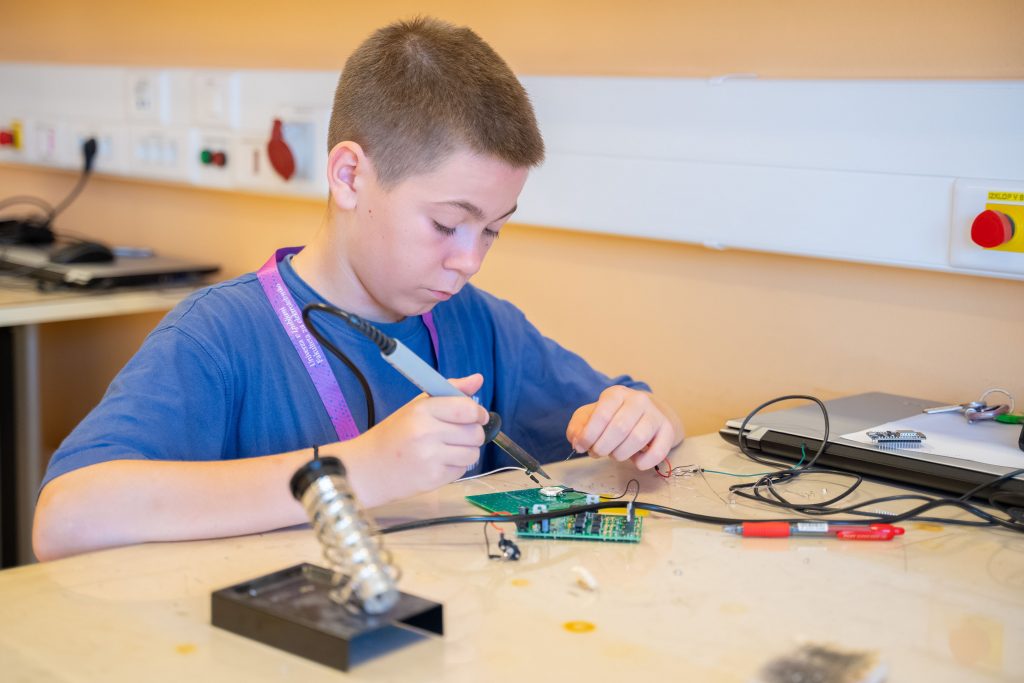
The Smart Cars workshop taught participants the basis of electrical engineering, electronics and embedded systems. They learned the correct way to connect external units and sensors to the microcontroller system to ensure reliable operation and to protect the microcontroller and components from overloading. They used the knowledge gained to modify a car model, removing unnecessary components. They designed and installed new circuitry to control the steering and driving speed, added sensors and wrote a microcontroller program that allowed the car to operate partially autonomously.
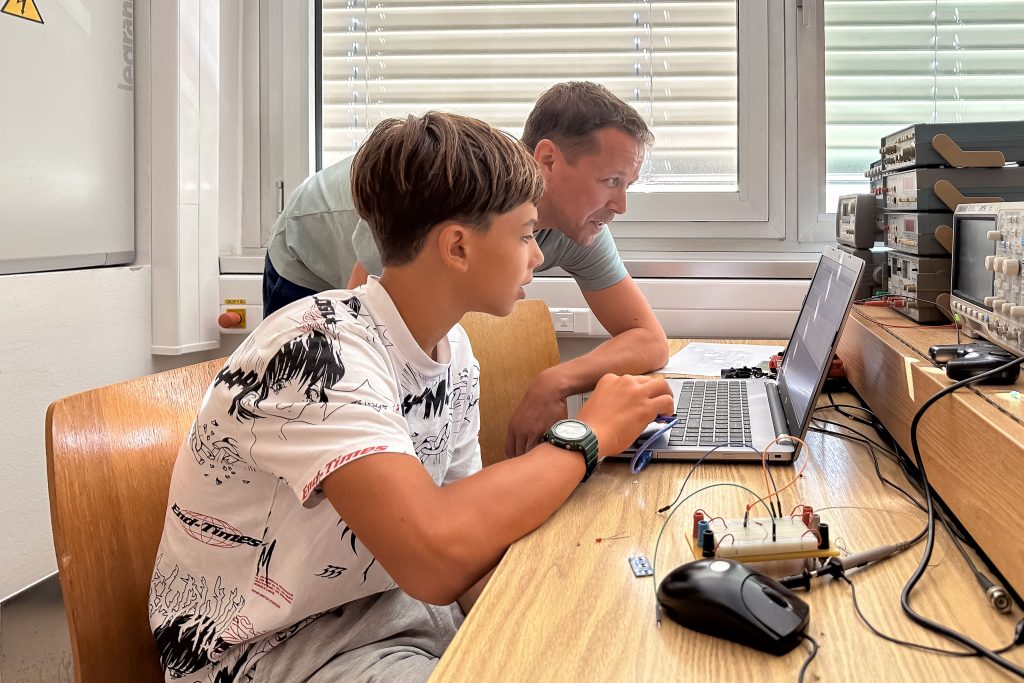
Participants in the Electricity in the Human Body workshop learned about the electrical nature of the heart, muscles and nerves and tried electrical stimulation to help muscles when they are not working properly. Using practical circuits, participants learned the basics of electrical engineering and built an amplifier to signal the electrical activity of the heart, which they used to measure their first electrocardiogram. During the workshop, everyone learned how to handle cells in the biology lab and learnt how electricity can affect cells. Participants had the opportunity to observe under a microscope how electrical "shocks" affect the permeability of the cell membrane and thus introduce DNA molecules into cells, making them fluorescent over time.
As part of the excursion, they also visited the UKC Ljubljana, where they were shown how electrical engineering skills can be applied in real life.
